Donor Match: Accepted. Family Secrets: Exposed. The Patient I Helped Turned Out to Be My Banished Sibling
It’s strange how a single phone call can change the course of your life—how routine can dissolve into chaos in a matter of moments. As a transplant coordinator, I’d fielded hundreds of calls, spoken to countless families, and bore witness to both hope and heartbreak. I prided myself on my composure, my professionalism, and my ability to focus on the facts even when emotions ran high. That morning, however, the universe conspired to remind me that no one is immune to the unpredictable tides of fate.
The voice on the other end of the line was urgent yet measured: a patient in desperate need of a kidney had finally matched with a suitable donor. I was to oversee the process. It was a textbook scenario—until it wasn’t. There was something familiar in the patient’s file, a flicker of déjà vu that I dismissed as stress or coincidence.
But as the days unfolded, I found myself drawn in, not just by professional duty but by a growing sense of unease—a feeling that some stories run deeper than medical charts and clinical histories.
In medicine, we often speak of “miracles,” but we rarely acknowledge the messy, human stories that make miracles possible. Behind every match is a history, a family, a web of secrets and sacrifices. This is the story of how a seemingly routine transplant became a doorway into my own family’s shadows—how, in trying to save a life, I uncovered truths that had been buried for decades.
I share this story not as a cautionary tale, but as an exploration of the ties that bind us and the secrets that can both protect and harm. The journey ahead is one of hope, heartbreak, and ultimately, unexpected connection.
The Donor Call
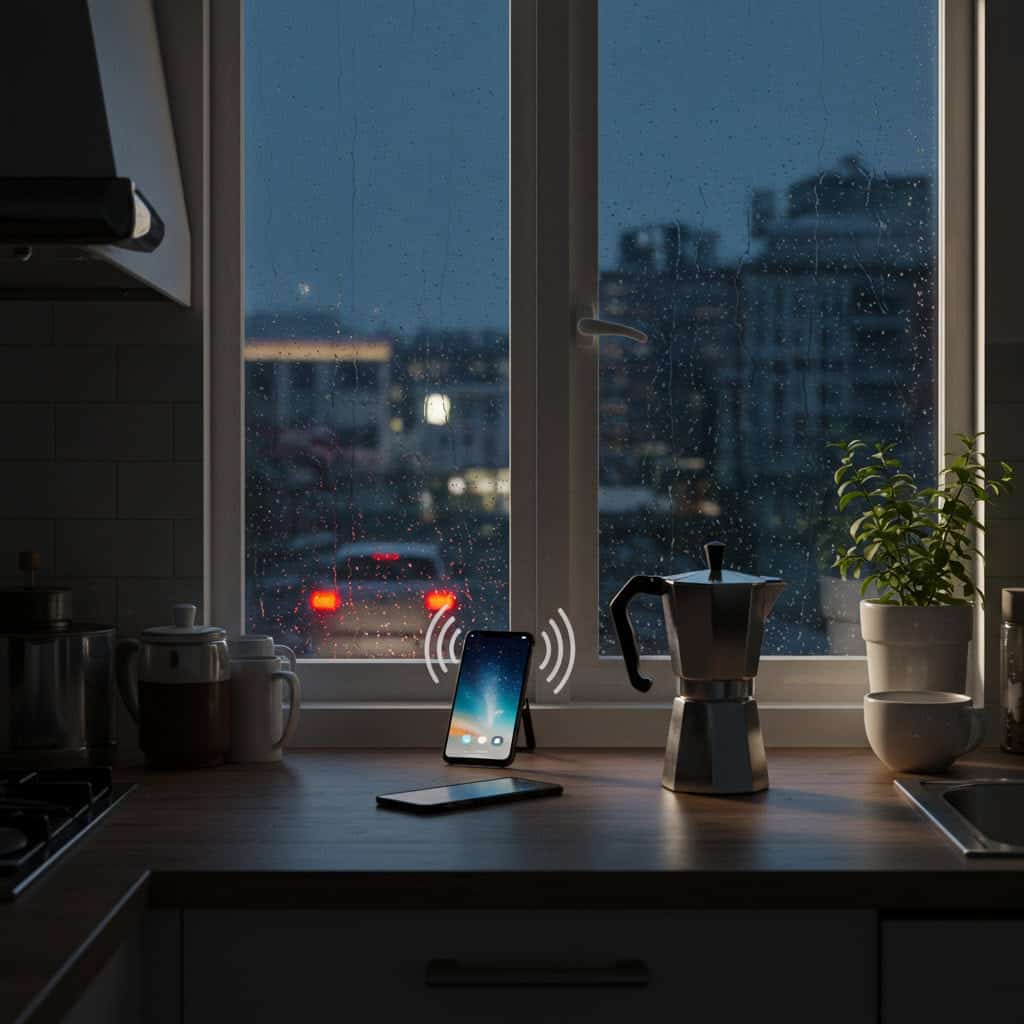
It was just after dawn when my phone vibrated on the edge of my kitchen counter, echoing through the quiet apartment. Outside, the city was only beginning to stir—muted headlights slipping past rain-streaked windows, the scent of brewing coffee barely masking the anticipation in the air. I reached for the phone with practiced calm, but my hand trembled slightly, betraying an undercurrent of nerves I’d never fully shed.
The voice on the line was familiar, yet carried an urgency that sliced through my sleepy haze. “We’ve found a perfect match,” the coordinator announced, her words precise and heavy with significance. My heart skipped, a cocktail of adrenaline and anxiety flooding my veins. I nodded, barely breathing as she recited the details. Another life on the line. Another family waiting for hope.
I scribbled notes, my mind both focused and distant, caught between duty and a strange, gnawing intuition. The world outside continued its slow awakening, oblivious to the seismic shift that had just taken place inside my small kitchen.
The Consent Form

As the morning wore on, I found myself seated at my desk, fluorescent lights humming above, the sterile scent of disinfectant grounding me in routine. Stacks of paperwork waited—consent forms, HIPAA disclosures, and the obligatory legal jargon that shields both patient and provider. I had completed these forms countless times, each line a familiar litany of risk and reassurance.
But as I reviewed the recipient’s details, something tugged at my attention. The name, though common enough, felt oddly significant. The birth date and city of origin sparked a distant memory, a sensation I tried to shake off as mere coincidence. My pen hovered, the ink trembling just above the paper. Why did this file feel different?
I double-checked the identifiers, willing myself to stay objective. Still, the unease lingered—a whisper that perhaps, beneath the legal language and clinical formality, lay a story far more personal than I dared admit.
The Waiting Room
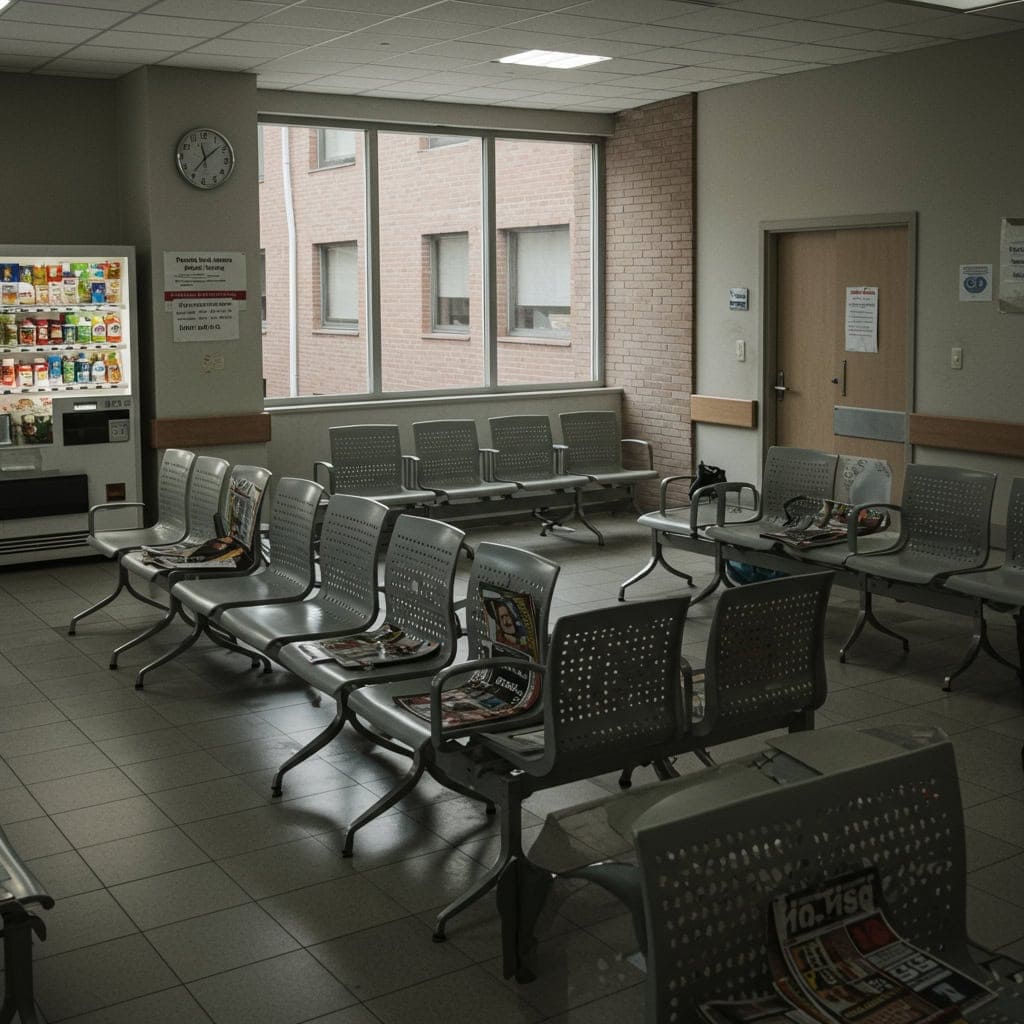
The waiting room was a study in controlled discomfort—plastic chairs lined in rigid rows, outdated magazines scattered on low tables, the hum of vending machines blending with the quiet murmur of early arrivals. I took a seat near the window, the view offering little distraction beyond the hospital’s brick facade. My hands fidgeted in my lap as I waited for my name to be called for pre-op testing.
Other patients sat nearby, some with loved ones, others alone, each cloaked in their own private worry. The air was thick with unsaid words and nervous energy. Despite my training, I couldn’t silence the thrum of anxiety building in my chest. Every time the nurse glanced at her clipboard, I felt a jolt of anticipation, wondering what lay ahead—not just for the procedure, but for the questions that seemed to be gathering momentum just beneath the surface.
The Bloodwork

When I was finally called to the lab, the antiseptic chill was almost comforting—a place where everything had order, procedure, and logic. The lab tech greeted me with a polite nod, her eyes flickering to the paperwork before her. She selected a tube from the rack, paused, and then scribbled an odd notation on the label. I caught a glimpse: an unfamiliar code, nothing like the usual patient numbers I’d seen on hundreds of samples.
As she slid the needle into my arm, the tech offered a comment that seemed loaded with meaning. “Not every day we see this kind of match,” she said quietly, almost to herself. I searched her face for more, but she gave nothing away. The words echoed in my mind, unsettling and inscrutable. The tube disappeared into a tray, joining a sea of anonymous samples, but I couldn’t shake the suspicion that mine was different for a reason I didn’t yet understand.
The Mismatched Data
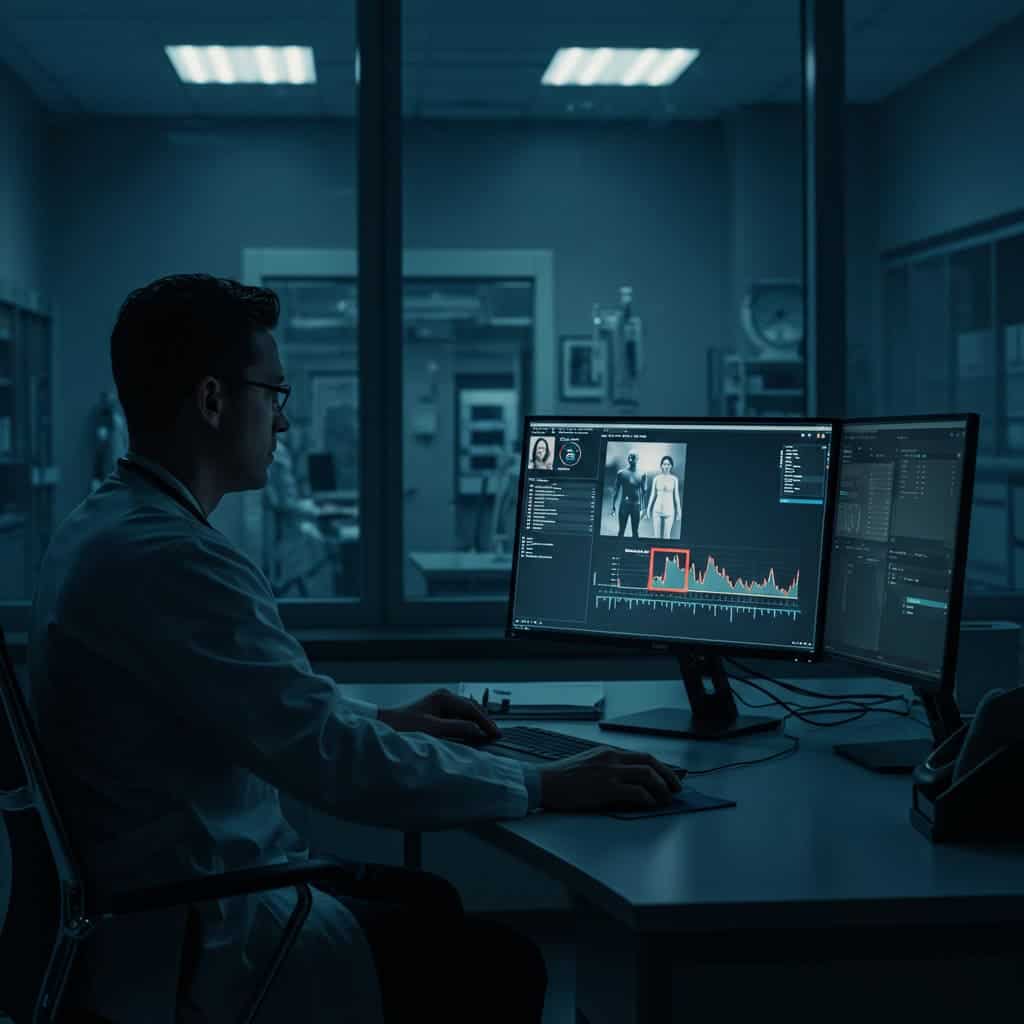
Later that afternoon, I retreated to my office, the hospital’s bustle muted behind closed doors. I pulled up my donor profile, intent on reviewing every detail before the final pre-op meeting. Years of habit had taught me to trust the data, to comb through each line with a critical eye. But this time, something felt off.
Scrolling through the family medical history section, I noticed a subtle but glaring inconsistency. A condition was listed—one that, to my knowledge, had never been present in my family. Confused, I double-checked my own entries, retracing the forms I’d filled out and the conversations I’d had with our genetic counselor. Had I missed something, or was there a mistake in the hospital’s records?
The discrepancy gnawed at me, fraying my confidence. Was it a clerical error, or a sign that the story I’d accepted about my family’s history was incomplete? For the first time, I wondered if the secrets I sensed were closer than I dared to imagine.
The Late‑Night Call

Sleep was elusive that night. I lay in bed, replaying the day’s events and the strange feeling that had settled over me like a second skin. The silence was broken by the shrill ring of my phone—a hospital number flashing across the screen. My heart raced as I answered, bracing for the worst.
A tired voice on the other end introduced herself from the transplant team. She spoke in careful, measured tones, her words cloaked in medical professionalism. “We’ve encountered a potential complication,” she began, pausing as if searching for the right phrasing. The details, however, were maddeningly vague. She mentioned a discrepancy in the records, a need for further verification, and the possibility that my donation might be delayed.
I pressed for specifics, but she dodged, assuring me that I would be contacted soon. The call ended, but my anxiety only intensified, each unanswered question feeding my growing sense of dread and anticipation.
The Old Photo
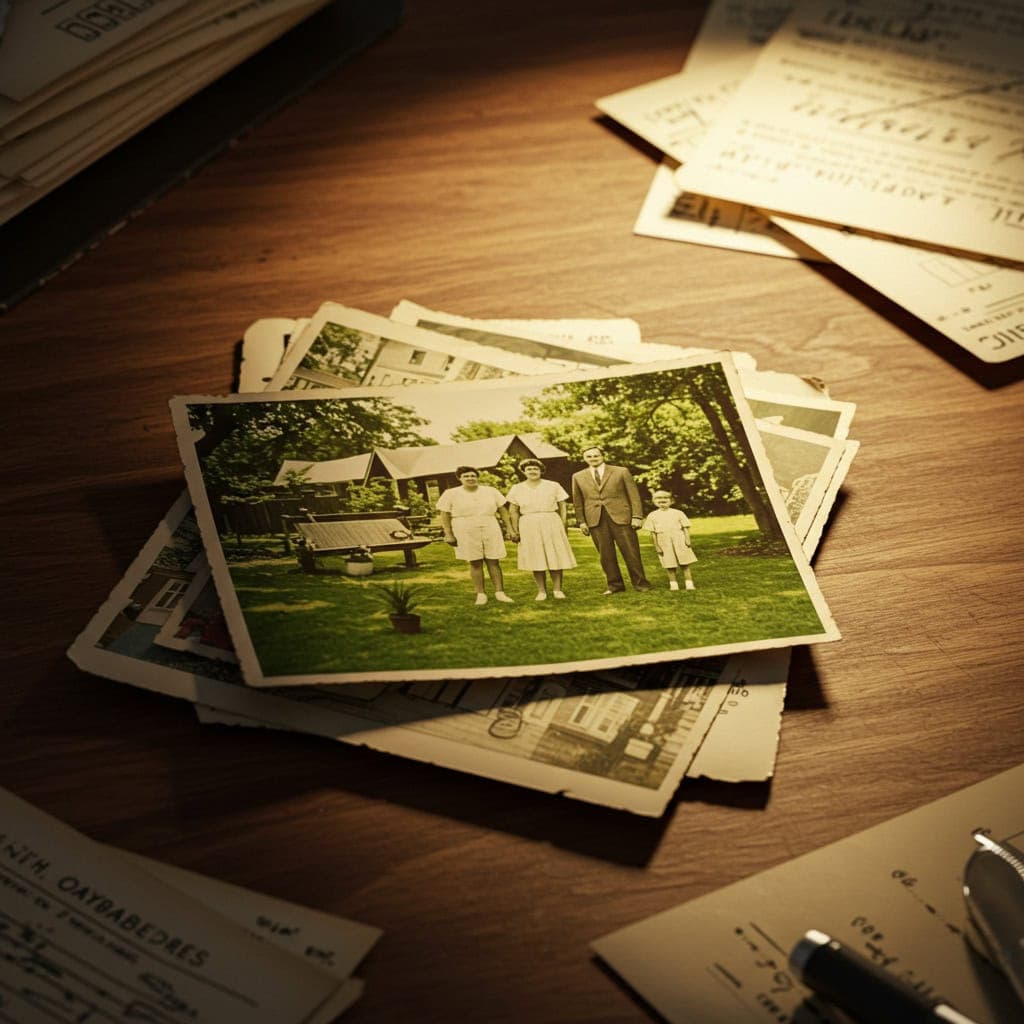
Restless and unable to sleep, I wandered to my desk in search of my insurance paperwork—one more detail to check before the coming days. As I rifled through old folders, my fingers brushed against a worn envelope wedged at the back of the drawer. Curious, I pulled it free, scattering a stack of yellowed photographs across the desktop.
One image caught my eye: a faded snapshot of my family in the backyard, frozen in an era before I was old enough to remember. There, next to my parents, stood a child I couldn’t place—a face I’d never seen in any other album. The child’s gaze was direct, almost pleading, and the photo’s edges were soft with age.
A chill ran through me. Who was this mysterious child, smiling among my family as if they belonged—and why had I never seen them before?
The Whispered Name
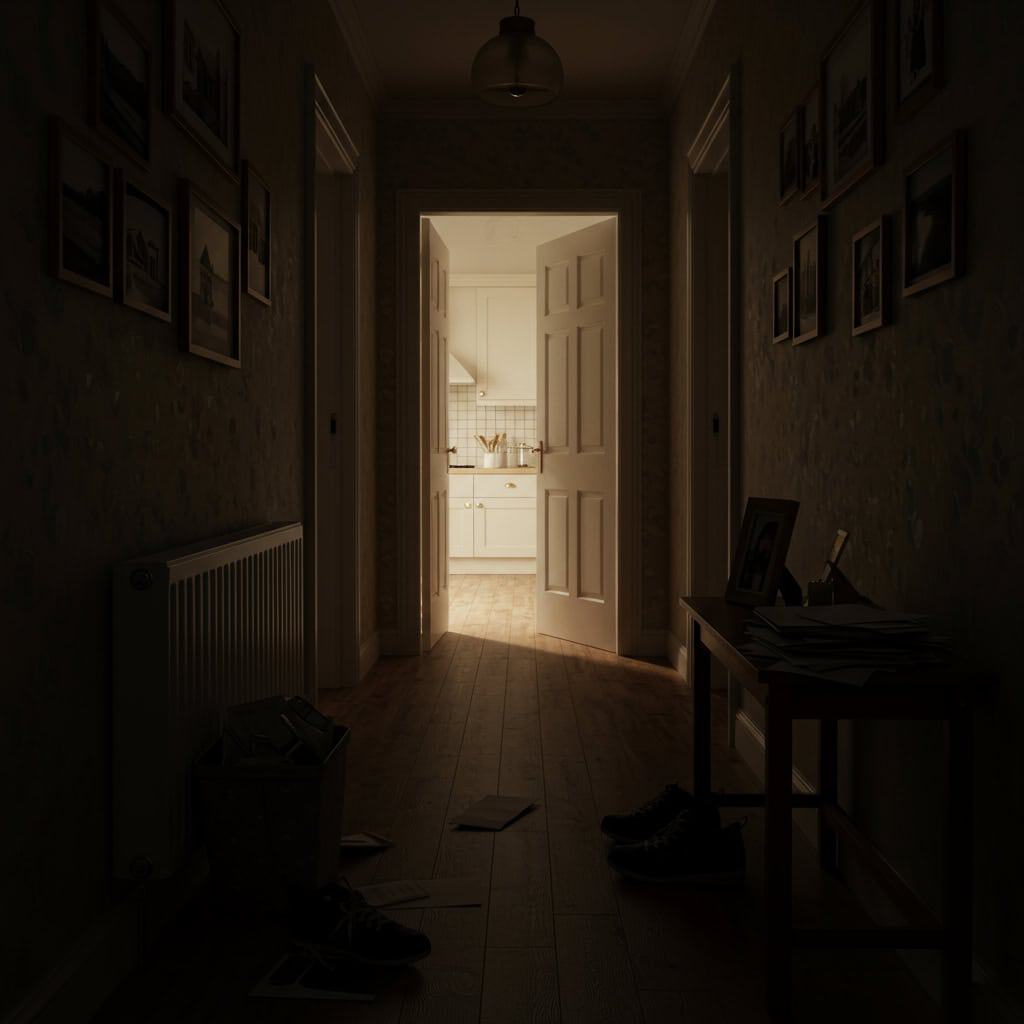
A few days later, I visited my parents’ house, ostensibly to collect some medical documents. As I waited in the hallway, I overheard voices drifting from the kitchen—my mother and aunt, speaking in hushed tones. They didn’t know I was within earshot. Their conversation was muffled, but a single name pierced the fog of memory: “Eli.”
The name sent a jolt through me. Eli—a name I hadn’t heard since childhood, buried in the recesses of old bedtime stories and half-remembered arguments. My mother’s voice was tinged with regret, my aunt’s with anxiety. “Do you think they’ll ever find out about Eli?” she whispered, barely audible.
Suddenly, the odd photograph and the inconsistencies in my donor paperwork snapped into sharper focus. Who was Eli, and why had the name been erased from our family’s narrative—only to resurface now, when so much was at stake?
The Banished Story
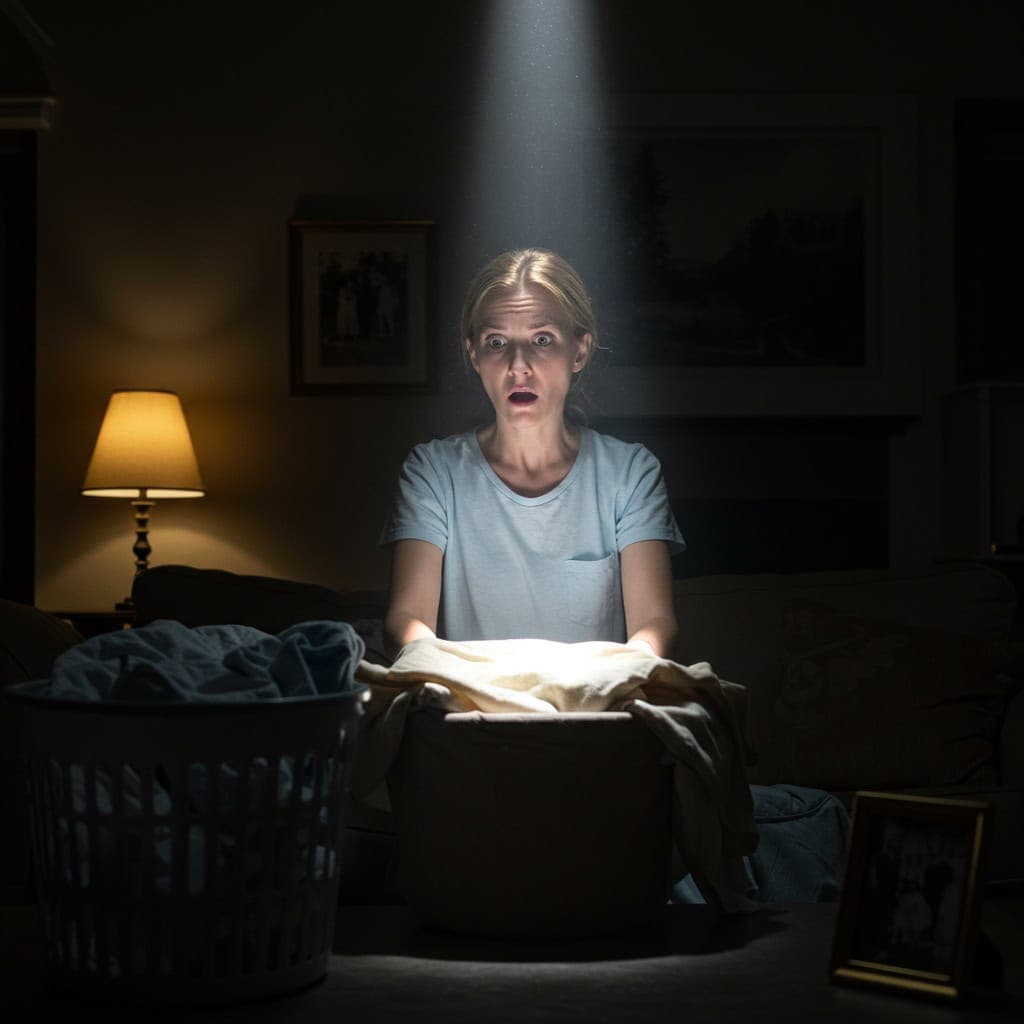
That evening, unable to contain my mounting questions, I confronted my mother as she sorted laundry in the dimly lit living room. I asked directly about the old photo, about the name Eli, and about the strange tension that had always hovered over certain family gatherings. For a moment, she stared at me, her hands frozen in mid-fold, her face pale and drawn.
She sighed, the weight of years pressing down on her shoulders. Finally, she spoke: “There was a time, long before you can remember, when Eli was part of this family.” Her voice trembled with equal parts sorrow and resignation. She recounted how, after a series of painful incidents—arguments, misunderstandings, and an event no one wished to name—Eli was sent away, his presence all but erased from family lore.
Whenever the subject arose at reunions or holidays, it was quickly dismissed, replaced by forced laughter or awkward silence. The legend of the ‘banished sibling’ had always been there, lurking at the edges of my childhood, but never acknowledged—until now.
The Hidden Letter
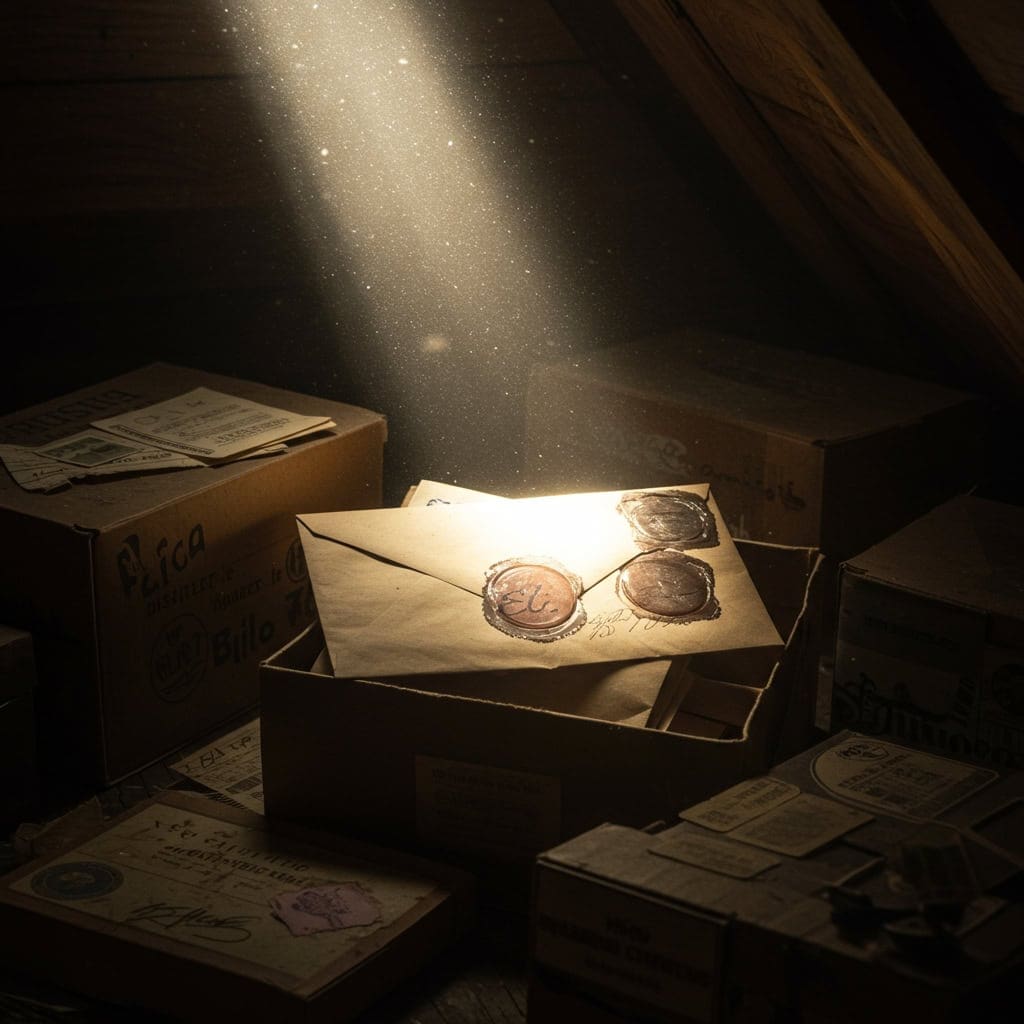
Restless after my conversation with my mother, I wandered the house, searching for answers among the objects of my childhood. In the attic, amid the dust and forgotten boxes, I stumbled upon a faded shoebox marked only with a date from decades past. Inside, beneath old report cards and birthday cards, was a sealed envelope with my mother’s handwriting. The name on the front—Eli—jumped out at me, sharp as a cry in the dark.
My breath caught as I turned the envelope in my hands. The letter was clearly meant for a sibling I had never known existed, the paper inside yellowed but unbroken. The words on the front, “For when you’re ready,” sent a chill through me. Here was tangible proof of a life entwined with my own—hidden, but never fully erased.
I hesitated, torn between respecting my mother’s privacy and the urgent need to unravel the secrets that had shaped my family in ways I was only beginning to understand.
The Family Tree
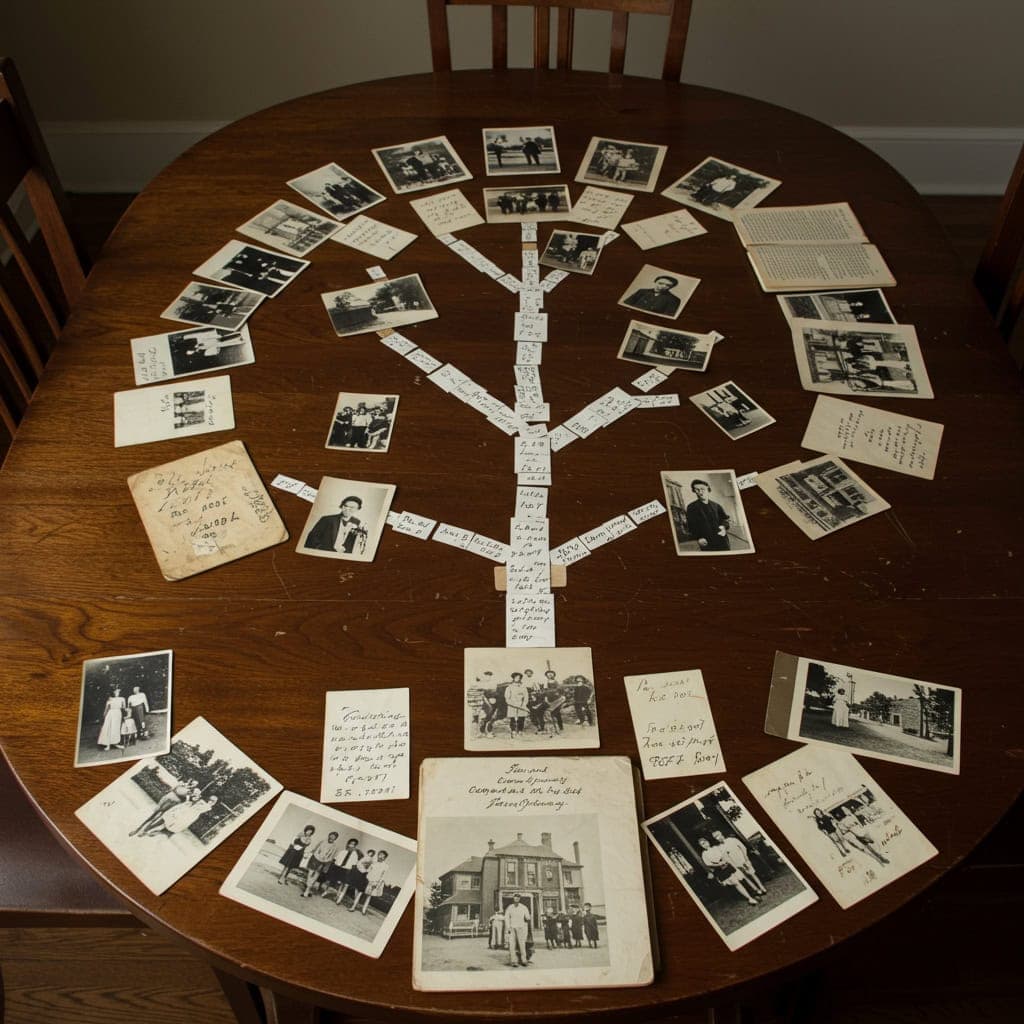
Driven by equal parts curiosity and desperation, I gathered every scrap of information I could find—old photos, dates scribbled on the backs of cards, cryptic notes from my mother’s journals. I laid them out on the dining room table, arranging and rearranging until a rough family tree began to emerge. There were gaps, of course, and branches that ended abruptly, but slowly, a picture took shape.
I traced the line that should have been Eli’s, filling in what little I knew: an approximate birth year, a few scattered memories from relatives, and the lingering sense of absence that permeated our family gatherings. With each piece, the reality of a lost sibling became less a rumor and more a fact—one my parents had worked hard to obscure.
The family tree was incomplete, but it was a start—a fragile map pointing toward the truth I could no longer ignore.
The Confrontation
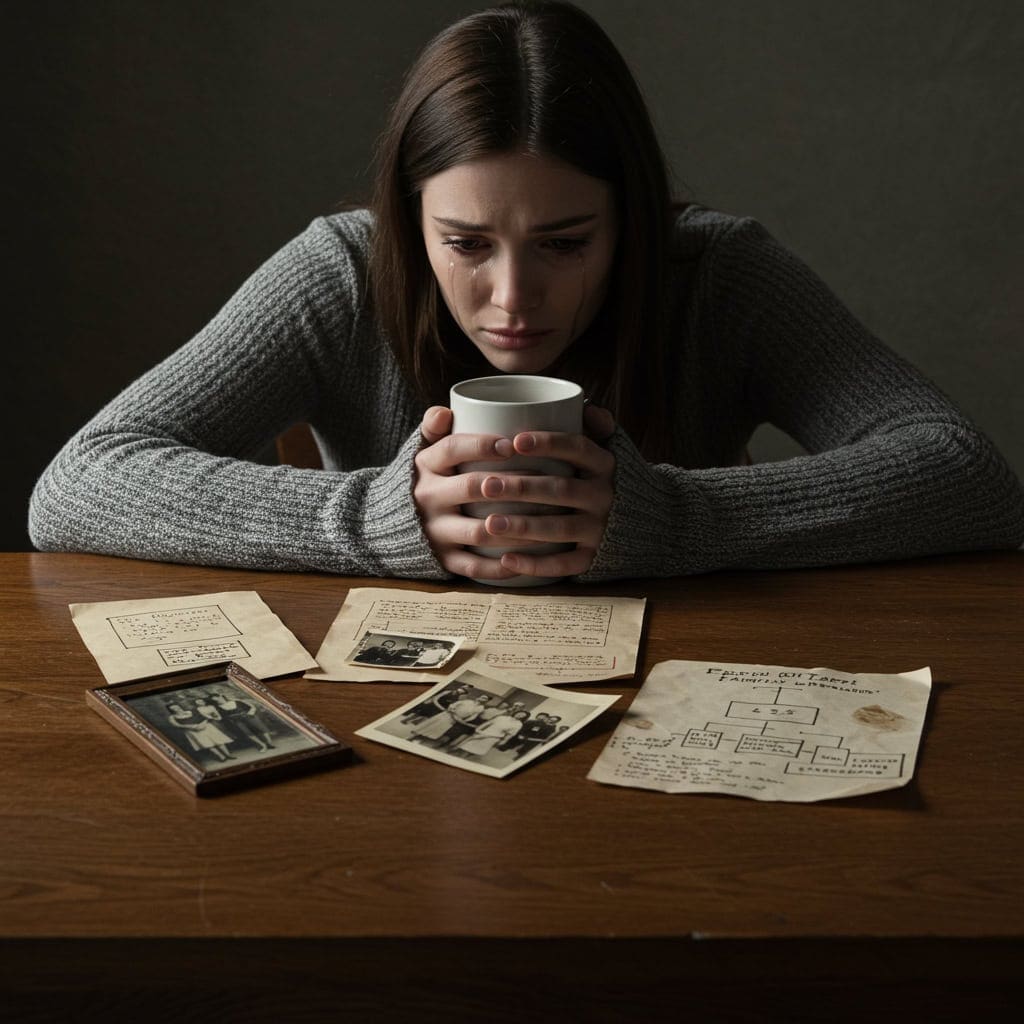
Armed with the faded photo, the hidden letter, and the rough family tree, I returned to my mother, my heart pounding with a mix of dread and resolve. She sat at the kitchen table, hands wrapped around a mug that had long since gone cold. I placed the evidence before her, meeting her eyes with a silent plea for honesty.
She stared at the items, her composure crumbling. Tears welled up, her breath hitching as she finally surrendered to the truth she had carried for decades. In a trembling voice, she recounted the painful history: Eli was my older sibling, sent away after a series of family crises no one wanted to face. Shame and fear had dictated their silence, leading to years of estrangement and secrecy.
She wept openly, apologizing for the lies and omissions, for the burden of a secret she had never wanted but felt powerless to change. Her confession was both a relief and a heartbreak, confirming what I had only dared to suspect.
The Patient Chart

Still shaken from my mother’s confession, I returned to the hospital with a new sense of urgency. I requested access to the recipient’s medical chart under the guise of a routine pre-transplant review. As I scrolled through the digital records, my pulse quickened—the birth date listed was identical to the one I’d penciled in for Eli on my makeshift family tree.
Digging deeper, I found a line item buried in the intake notes: a previous surname that matched my mother’s maiden name. The patient had used a different last name for most of their life, but the connection was undeniable. There it was—irrefutable proof that the person I was preparing to donate to was the sibling my family had kept hidden for so long.
I sat back in my chair, stunned. Every piece of the puzzle had fallen into place. The anonymous patient was no longer a stranger, but the sibling I’d never met—lost to time, but now, perhaps, within reach.
The Secret Bank Account

As the threads of family secrecy unraveled, I found myself compelled to dig even deeper. Sorting through a pile of household bills and statements my mother had left on the dining table, I noticed a bank account number that didn’t match any of the regular household expenses. The monthly statements went back years, each one showing small, regular transfers to an unfamiliar name.
Curiosity morphed into alarm as I realized the recipient’s details matched the alias I’d seen on the patient chart. My family had been sending money all these years—quietly, consistently, and without ever speaking a word about it. The payments were never large, but their frequency spoke volumes about a sense of responsibility or lingering connection.
It was another layer of proof: even banished, Eli had never truly been forgotten. The silent payments told a story of guilt, unresolved ties, and a hope that perhaps, one day, reconciliation might be possible.
The Sibling’s File
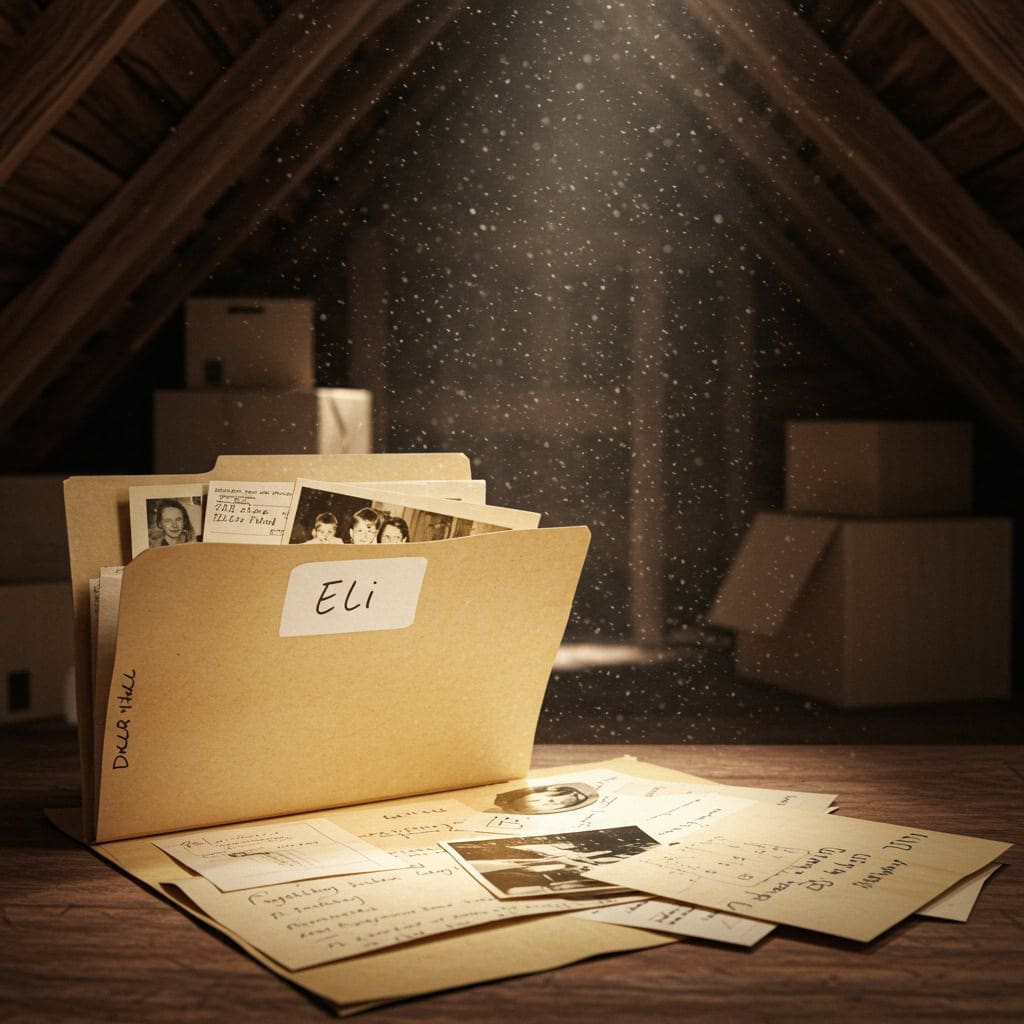
A few days later, as I continued to help my mother sort through old boxes in the attic, we stumbled upon a battered manila folder, taped shut and marked simply with Eli’s name. My mother hesitated, then handed it to me with trembling hands. Inside, I found a trove of documents—old school reports, photos, and several folded letters written in a looping, childlike script.
The reports detailed a student who struggled with belonging, punctuated by notes from teachers about sudden absences and frequent moves. Tucked among the paperwork were letters addressed to “Mom and Dad,” filled with longing and confusion. Eli wrote about missing home, about trying to be good, and about wondering if anyone thought about them anymore. The words were raw and honest, a window into a childhood marked by displacement and yearning for acceptance.
Reading through the file, I felt the wall between past and present crumble. These weren’t just remnants of a forgotten life—they were evidence of a sibling’s pain, hope, and enduring need for connection.
The Outsider’s Arrival
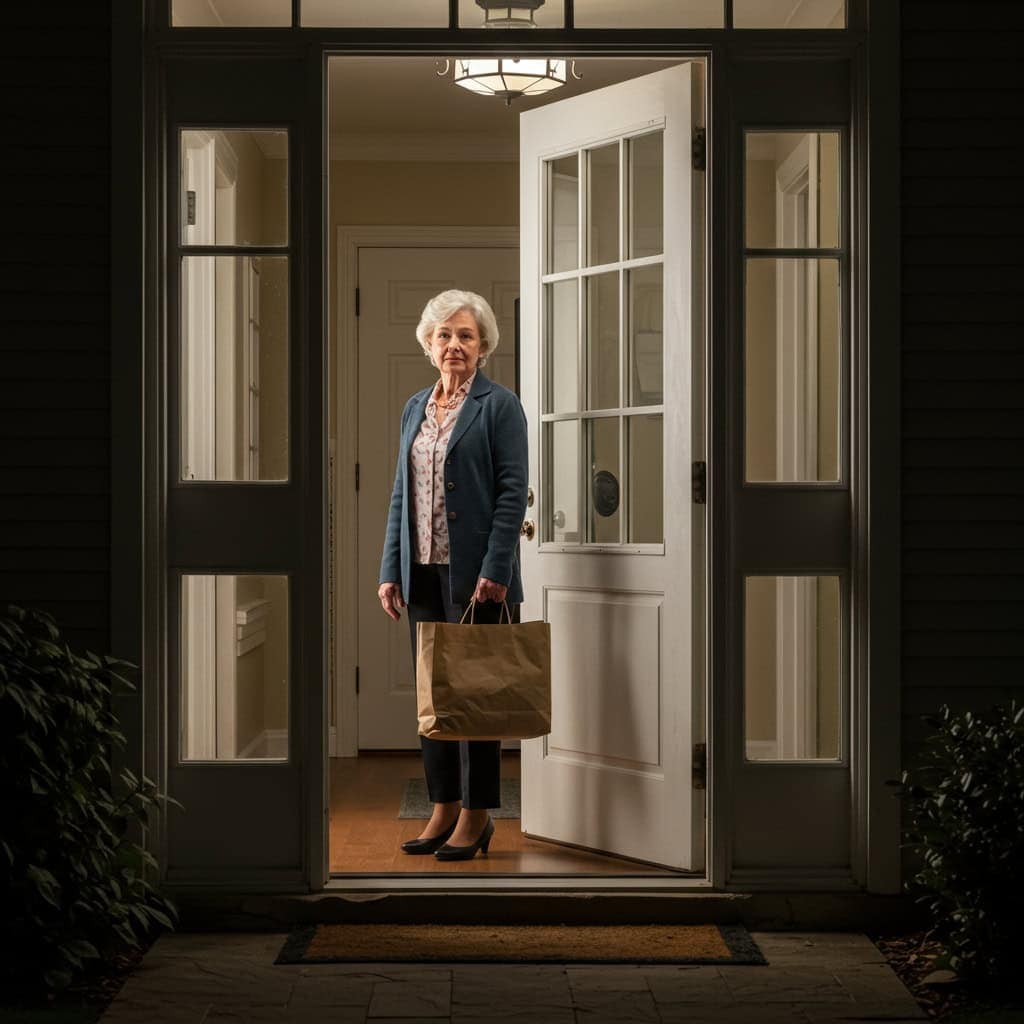
The day after discovering Eli’s file, the doorbell rang unexpectedly. Standing on the porch was my Aunt Margaret—a relative who had drifted from our family years ago, her presence always a source of whispered speculation. She entered the house without waiting for an invitation, her gaze sharp and knowing as she surveyed the familiar rooms.
After an awkward silence, she set her bag down and announced, “I know everything about Eli. More than your parents ever told you.” Her words cut through the tension, drawing stunned looks from both my mother and me. Aunt Margaret explained that she had kept in touch with Eli over the years, exchanging letters and occasional phone calls, even visiting during times of crisis.
She spoke with a mixture of defiance and compassion, filling in gaps that my mother’s confession had left open. With each revelation, the picture of Eli’s life grew more complex—and the family’s efforts to erase him seemed both futile and unbearably sad.
The Reunion Plan
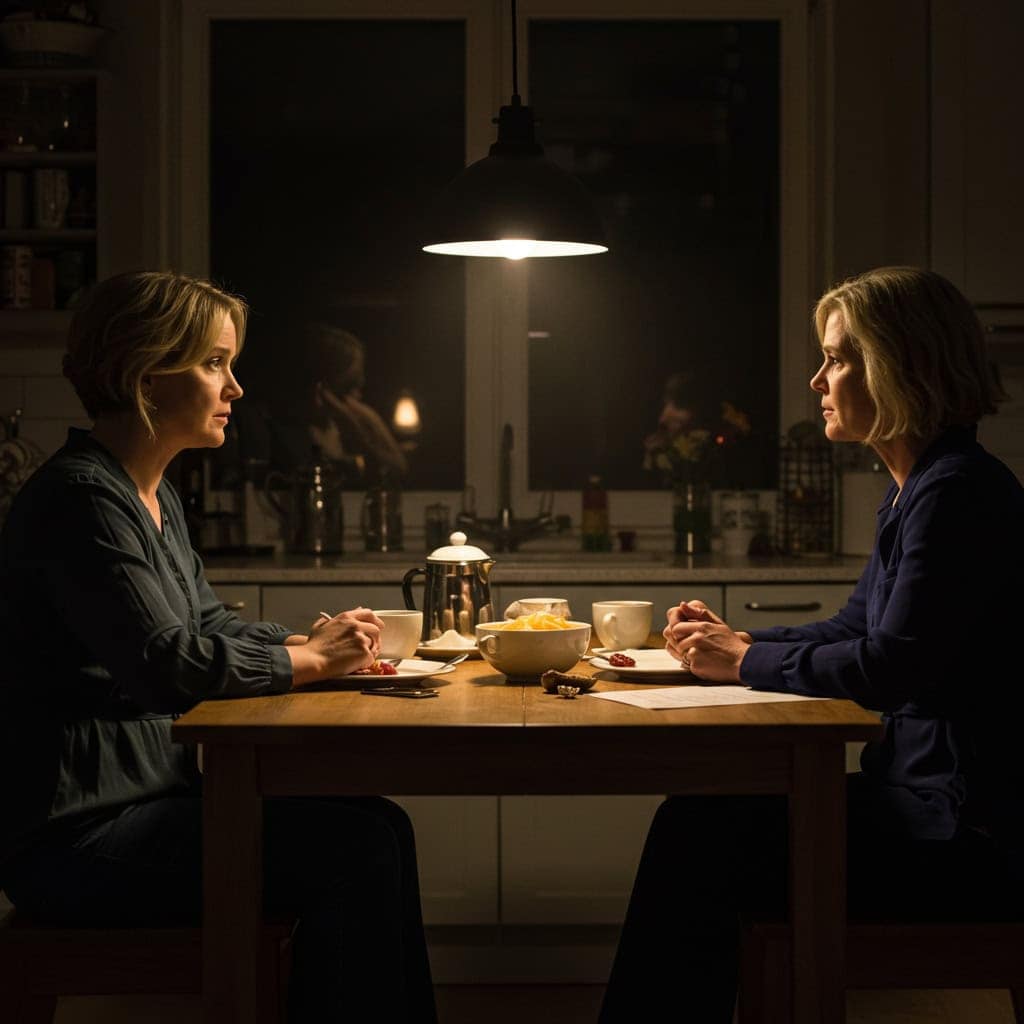
With secrets finally unveiled, Aunt Margaret and I sat at the kitchen table late into the night, voices hushed and hearts pounding. She revealed that Eli was living only hours away, and though wary, had expressed a tentative openness to reconnect. The idea of a meeting was both thrilling and terrifying—especially knowing it could further fracture our already fragile family.
Together, we crafted a plan. Aunt Margaret would reach out, explaining that I knew everything and wanted to meet—not just as a donor, but as a sibling searching for truth and reconciliation. We agreed to move slowly, letting Eli set the pace, and to keep the arrangements secret from my parents until the time felt right. The risks were enormous, but so was the potential for healing.
As the plan took shape, I realized that the road ahead would not be easy. But the possibility of finally meeting Eli, of bridging a lifetime of silence, was a chance I couldn’t let slip away.
The DNA Test

Despite the mounting evidence, there remained a sliver of doubt that only science could erase. With Aunt Margaret’s help and Eli’s cautious agreement, we arranged for a discreet DNA test. We met at a neutral location—a quiet clinic on the outskirts of the city, chosen for its anonymity and lack of questions.
The process was simple: a cheek swab, a form, and a promise that results would arrive in just a few days. The emotional stakes, however, were anything but simple. As the nurse sealed our samples, I caught Eli’s eye for the first time—his features both familiar and strange, carrying echoes of my own face and the old family photographs.
We parted with little more than a nod, the enormity of the moment hanging in the air. Waiting for the results felt like holding my breath underwater, unsure if I would surface to relief or heartbreak. The truth was nearly in reach, but it came with no guarantees.
The Hospital Encounter
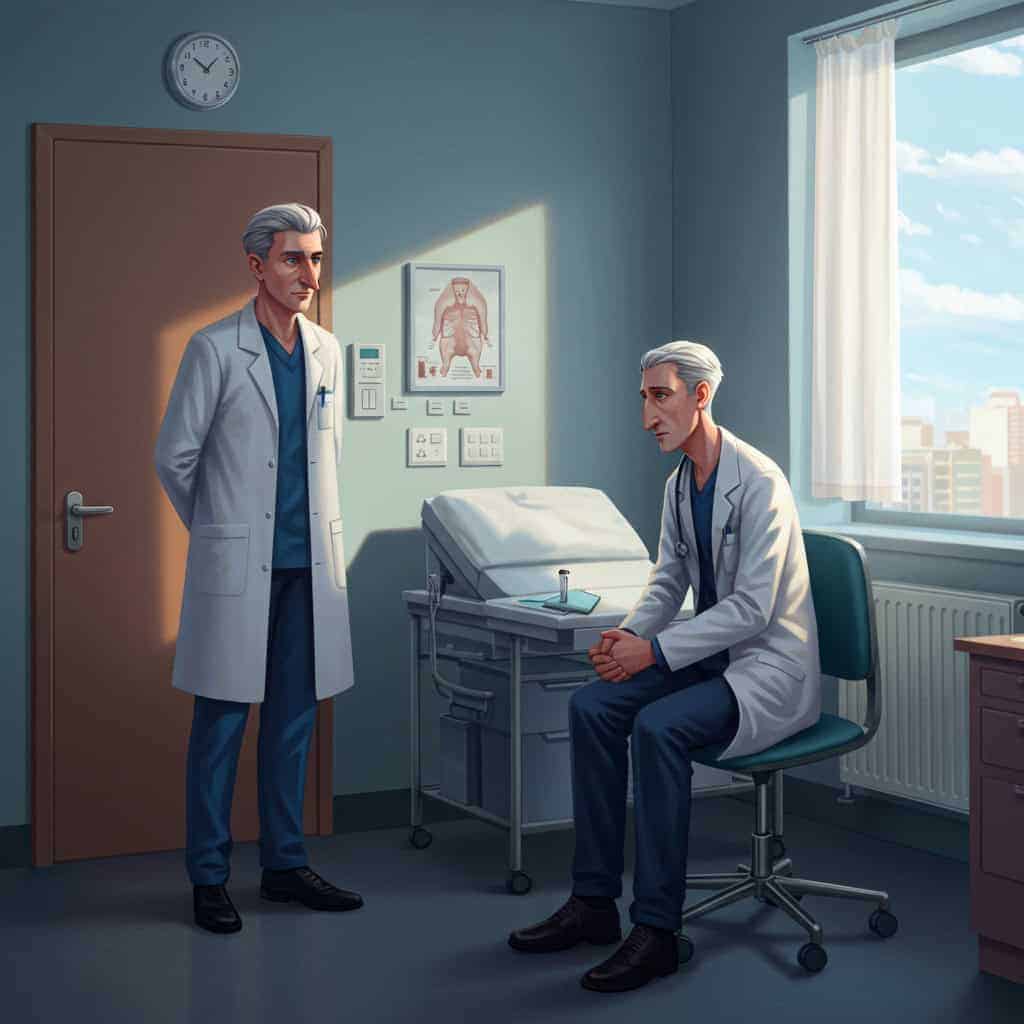
The day of the pre-surgical consultation arrived. I walked the hospital corridors, my mind swirling with anticipation and anxiety. When I entered the consultation room, I finally saw Eli—not as a case number or a clinical chart, but as a living, breathing person. He sat quietly, hands folded in his lap, eyes fixed on the window.
The resemblance was unmistakable. I saw my own jawline mirrored in his, the curve of our noses almost identical, and a familiar seriousness in his gaze. For a moment, words failed us both. The hospital’s sterile white walls seemed to pulse with all the unspoken history between us.
Eli spoke first, his voice steady but tinged with uncertainty. “I guess we have a lot to talk about.” It was a simple sentence, but it broke the dam between us. I nodded, emotions threatening to spill over. The hospital, usually a place of clinical detachment, had become the stage for the most intimate and unexpected reunion of my life.
The Hidden Diary
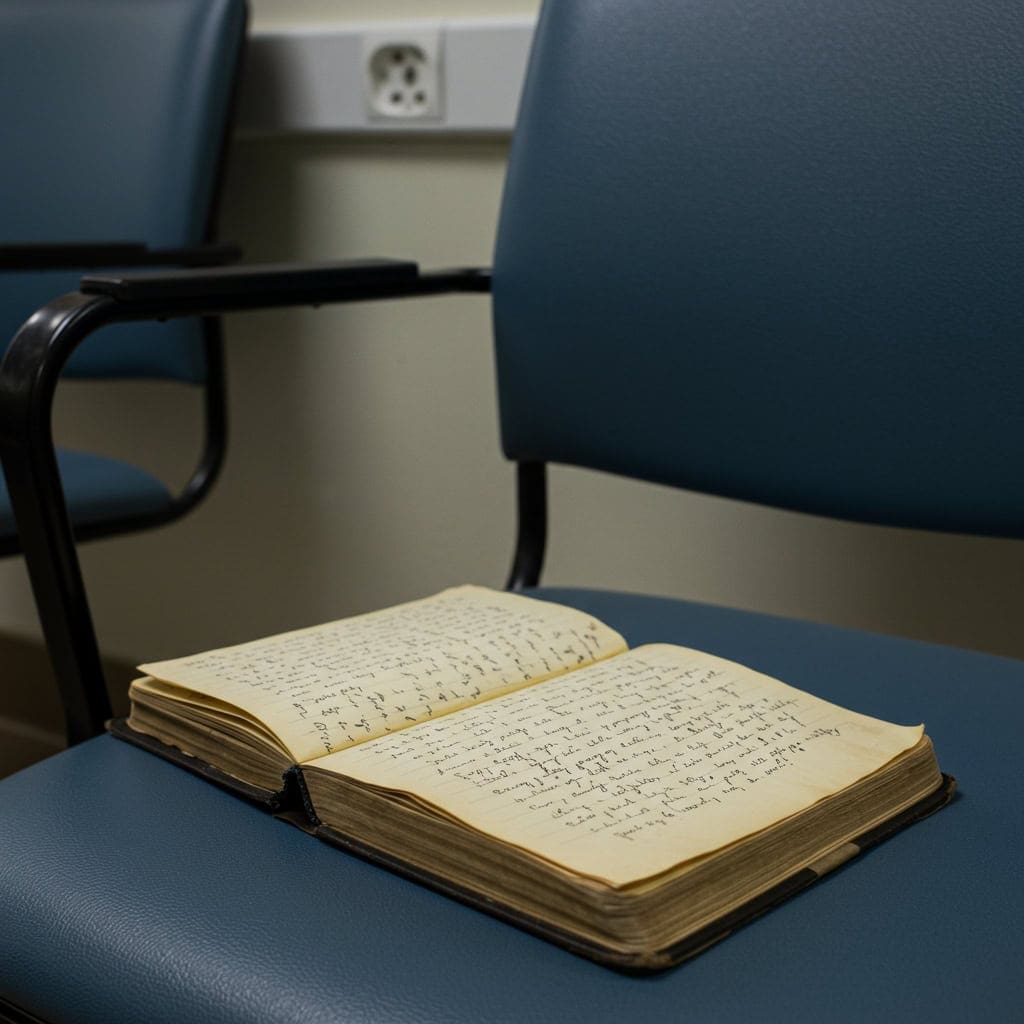
After our tense yet hopeful meeting at the hospital, Eli left behind a battered notebook on the chair. I recognized it as a diary when I picked it up, its edges frayed from years of use. Torn between guilt and curiosity, I leafed through the pages, finding a chronicle of pain, hope, and betrayal.
Each entry offered a window into Eli’s world: the isolation of growing up apart, the ache of unanswered letters, the burning resentment at being cast aside. There were moments of longing too—descriptions of imagined reunions, questions about what I might be like, and a desperate wish to belong. The words were raw, sometimes angry, sometimes heartbreakingly tender.
Reading Eli’s diary made the consequences of our family’s choices achingly real. The wounds ran deep, yet beneath the resentment lingered a hope that—perhaps—things could change. I vowed to honor that hope, no matter how difficult the path ahead.
The Group Text
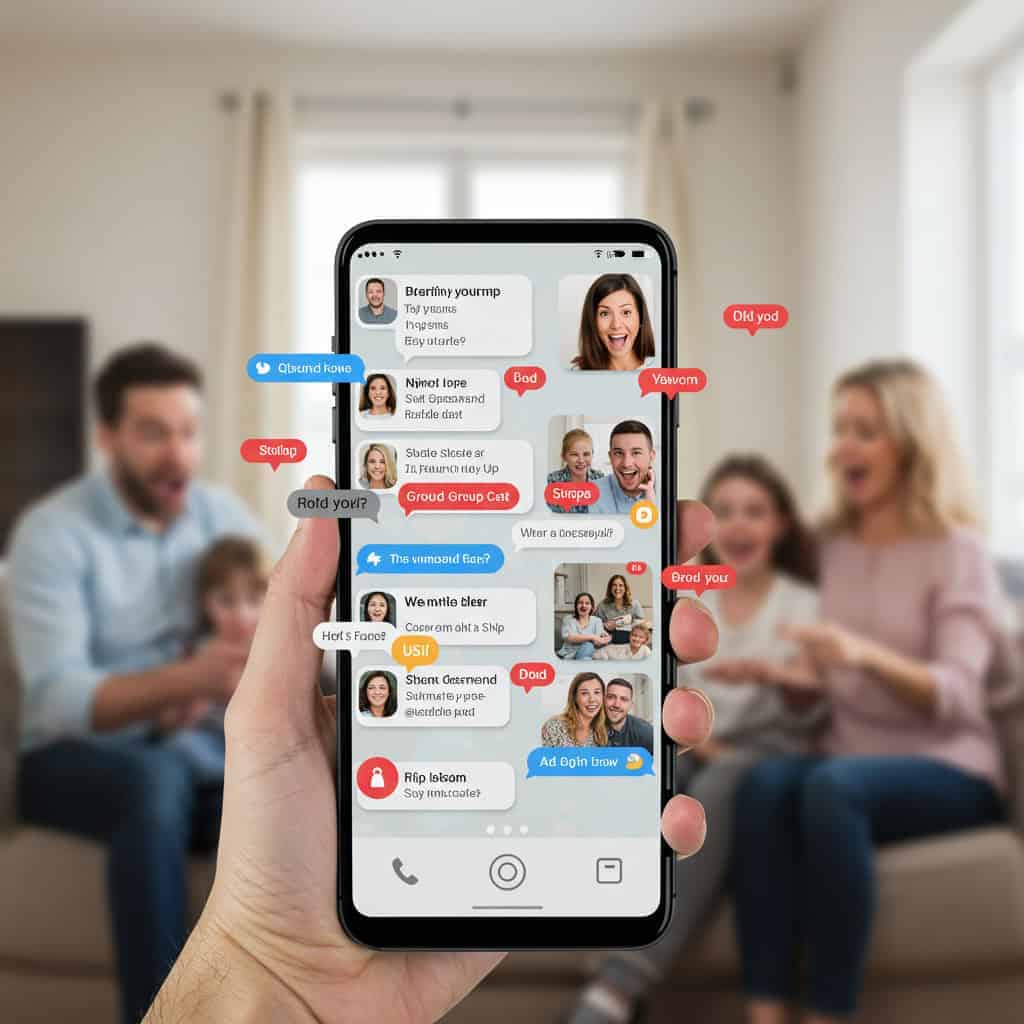
Just as I was beginning to process the magnitude of everything, my phone buzzed with a barrage of notifications. Our sprawling family group chat—usually reserved for birthday wishes and shared recipes—had erupted into chaos. A well-meaning but impulsive cousin had somehow caught wind of the unfolding reunion and spilled the secret in the group.
With a single message, the truth was out: “Did anyone else know about Eli? Turns out he’s the transplant patient!” The responses flooded in—shocked emojis, rapid-fire questions, and accusations of betrayal. Old wounds reopened, family alliances shifted, and years of silence gave way to a torrent of raw emotion.
I watched the drama unfold in real time, my heart pounding. There was no way to put the genie back in the bottle. The truth was out, for better or worse, and our family would never be the same. The road to healing would now have to include everyone.
The Ultimatum
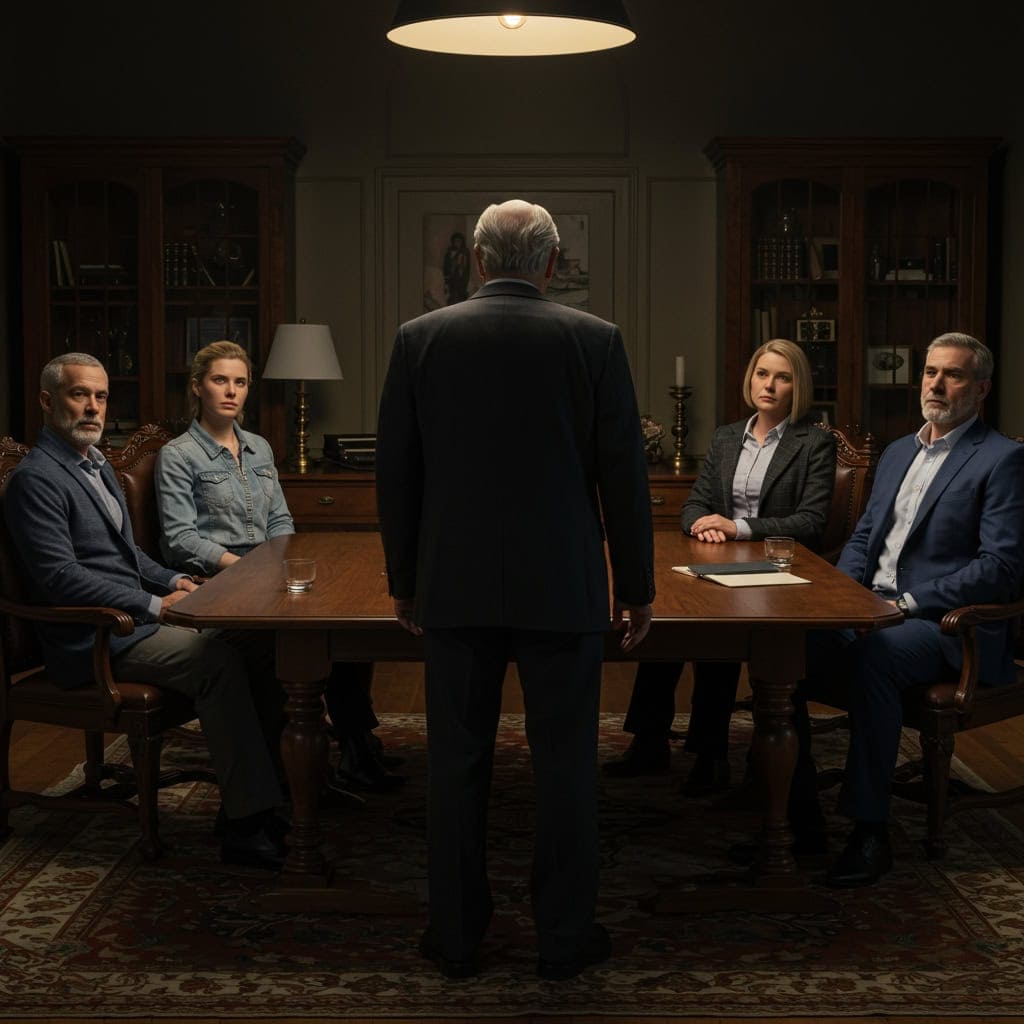
The fallout from the group chat was immediate and fierce. Within hours, my grandfather—always the family’s unyielding patriarch—called an emergency meeting. His voice was cold and resolute as he addressed us, refusing to look anyone in the eye. “If you continue down this path,” he warned, “there will be consequences. Keep the past where it belongs, or you risk losing your inheritance and your place in this family.”
His ultimatum landed like a blow. The message was clear: loyalty to the family’s version of the truth came at a price, and any deviation would not be tolerated. Some relatives looked away in discomfort, while others nodded in grim agreement. The threat was both financial and emotional, a final attempt to keep old secrets buried.
In that moment, I realized that honoring Eli—and myself—would mean risking everything I’d once taken for granted.
The Financial Evidence
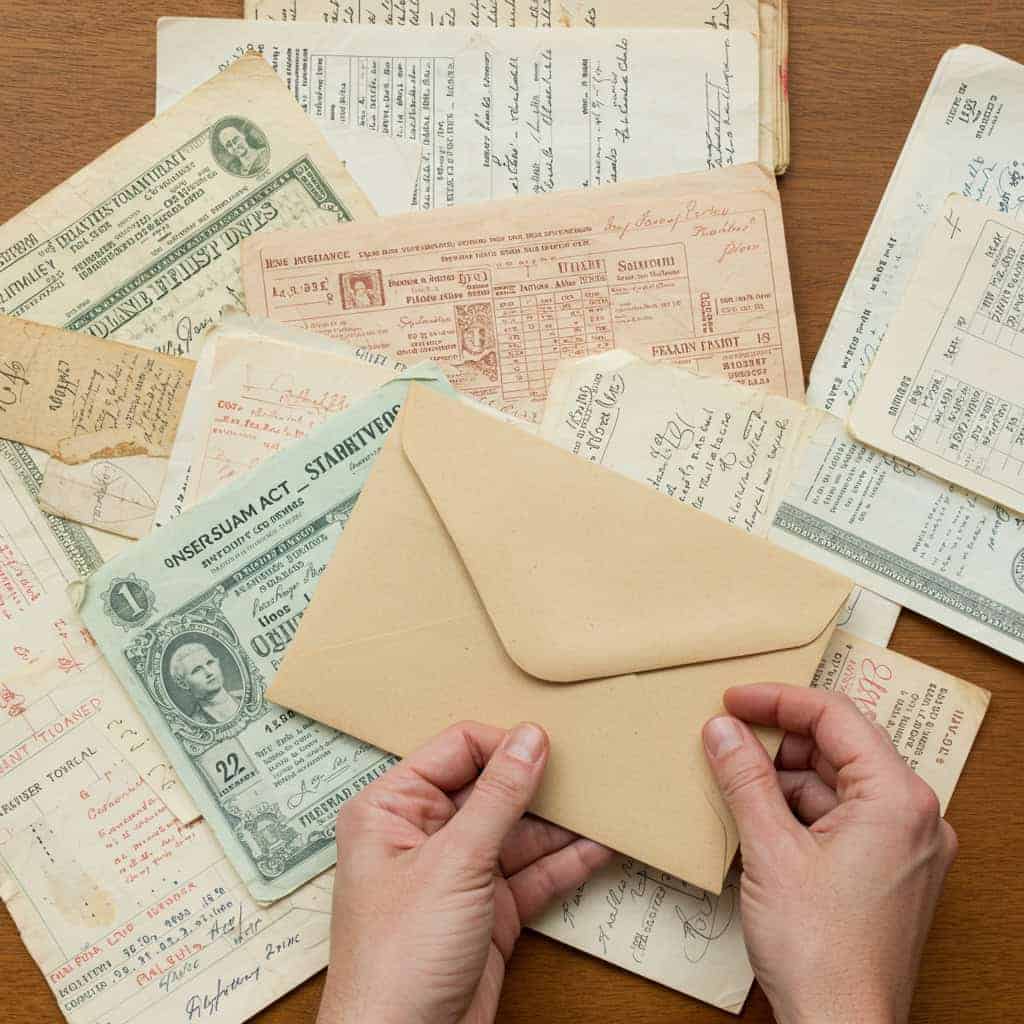
In the days following the ultimatum, I found myself combing through yet another box of family paperwork—this time with a sharper eye for the truth. Tucked among insurance statements and utility bills was a thick envelope stuffed with faded receipts and handwritten ledgers. The amounts, dates, and cryptic notes told a story that was impossible to ignore.
Many receipts were for cash withdrawals, hotel stays, and payments to unfamiliar names. I recognized a few as belonging to Eli’s caretakers or schools, while others referenced “settlements” and “discretion fees.” The pattern was clear: these were the silent markers of hush money and cover-ups, evidence of a decades-long effort to keep Eli’s existence out of public view. Every transaction was a link in a chain of secrecy, maintained at great emotional and financial cost.
Seeing it all laid bare, I couldn’t help but feel a mix of anger and sorrow. The truth had always been there—just beneath the surface, hidden in plain sight, paid for with guilt and fear.
The Public Reveal
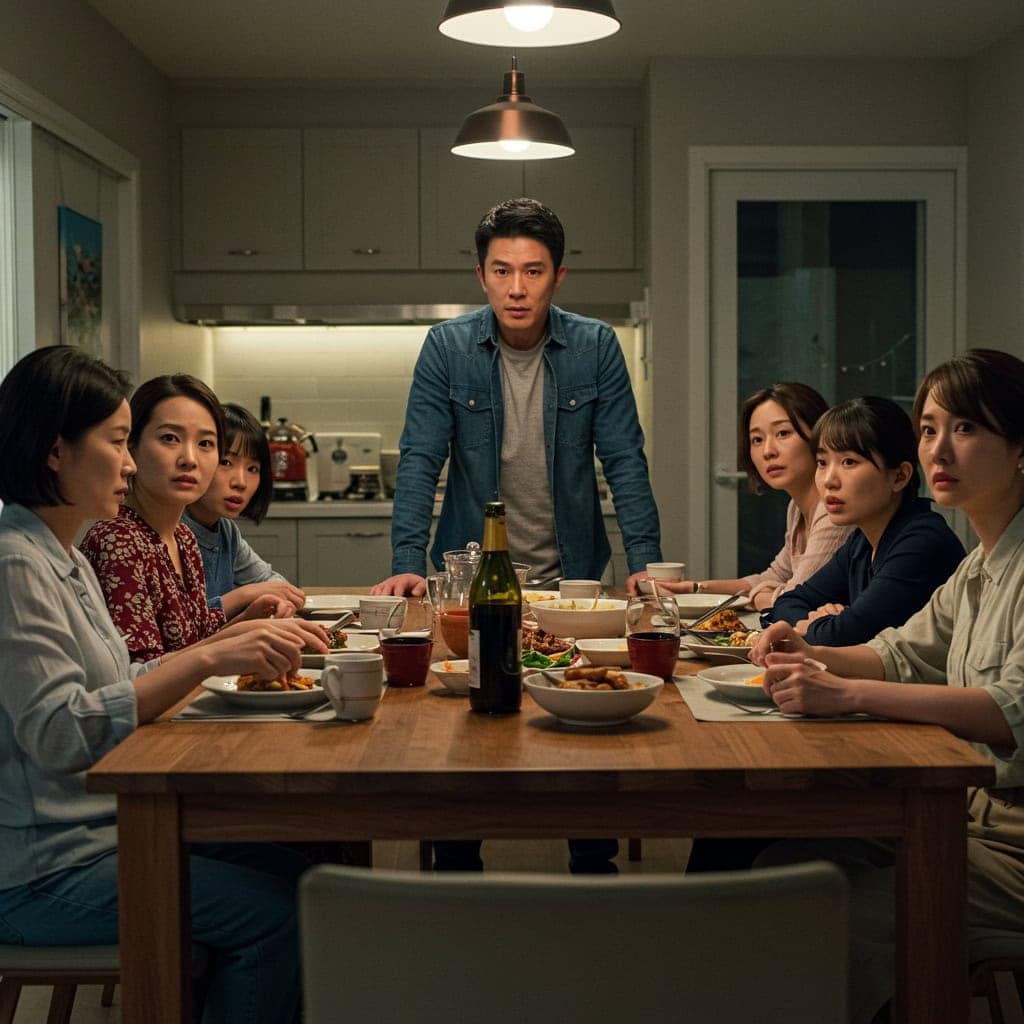
The tension that had been simmering beneath the surface finally erupted at a family dinner intended to restore normalcy. The table was crowded with relatives, the air thick with forced conversation and nervous glances. I could feel the weight of the secret pressing on my chest, threatening to suffocate me. When my grandfather made a veiled reference to “family unity,” something inside me snapped.
I stood up, my voice trembling but clear. “We need to talk about Eli,” I announced, silencing the room. Gasps and sharp whispers spread like wildfire. I laid out the truth: the decades of secrecy, the hush money, and the pain of erasure. Aunt Margaret backed me, producing copies of the receipts and letters I’d found. My mother wept openly, while my grandfather’s face hardened with fury.
Suddenly, all pretense fell away. Arguments broke out, old resentments surfaced, and alliances fractured in real time. It was chaos, but for the first time, everything was out in the open. The family could no longer hide from its own history.
The Fallout
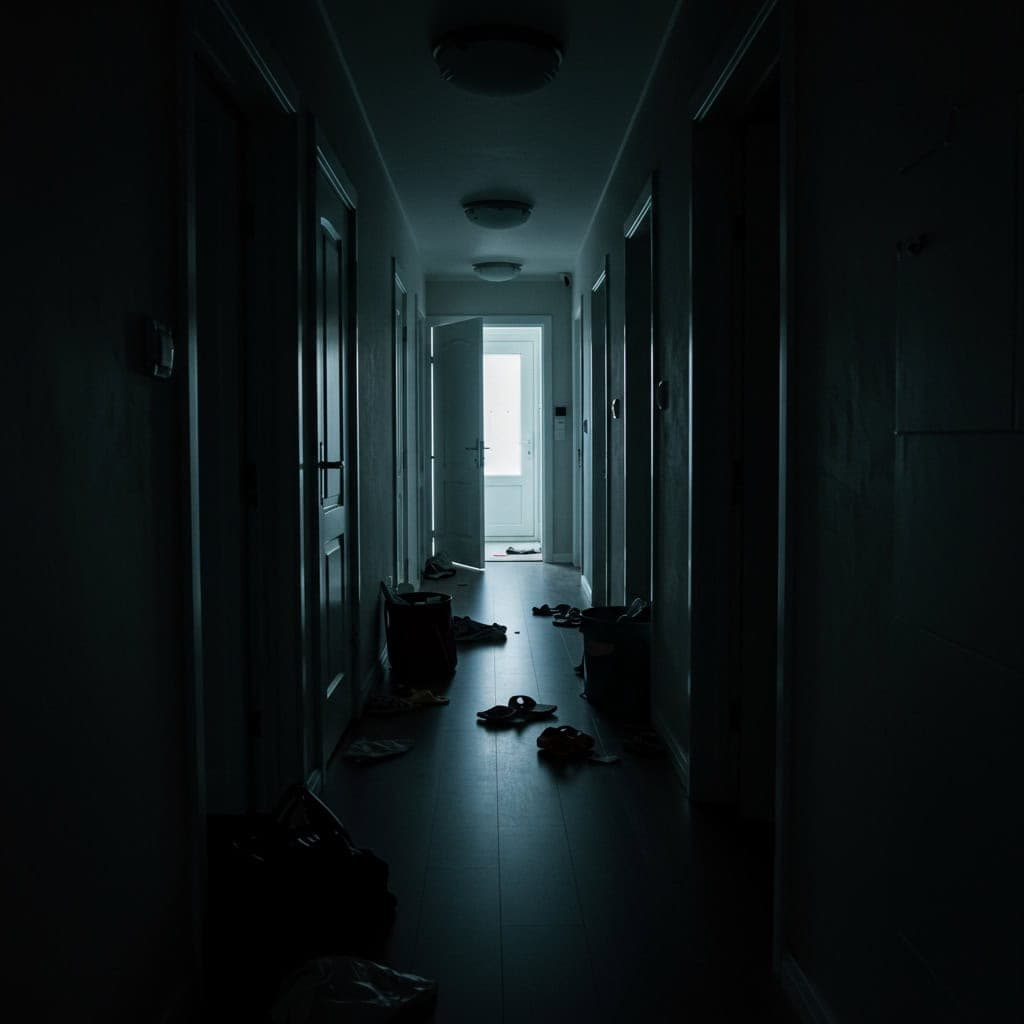
The days following the dinner were marked by an uneasy silence, punctuated by bursts of anger and grief. Relatives who had once exchanged pleasantries now avoided one another’s calls. Some blamed me for airing the family’s secrets, while others lashed out at my parents and grandfather for years of deception. Whispered accusations lingered in hallways, and old wounds reopened with every retelling.
A few family members left in the middle of heated arguments, slamming doors behind them. My grandfather withdrew entirely, refusing to speak to anyone who questioned his authority. Cousins took sides, friendships dissolved overnight, and family group chats became battlegrounds for loyalty and resentment. Even the youngest members sensed the shift, their laughter replaced by anxious glances.
For all the chaos, there was also a strange sense of relief. The truth, once spoken, could not be taken back. No more secrets, no more lies—only the raw, messy aftermath of honesty.
The Sibling’s Side
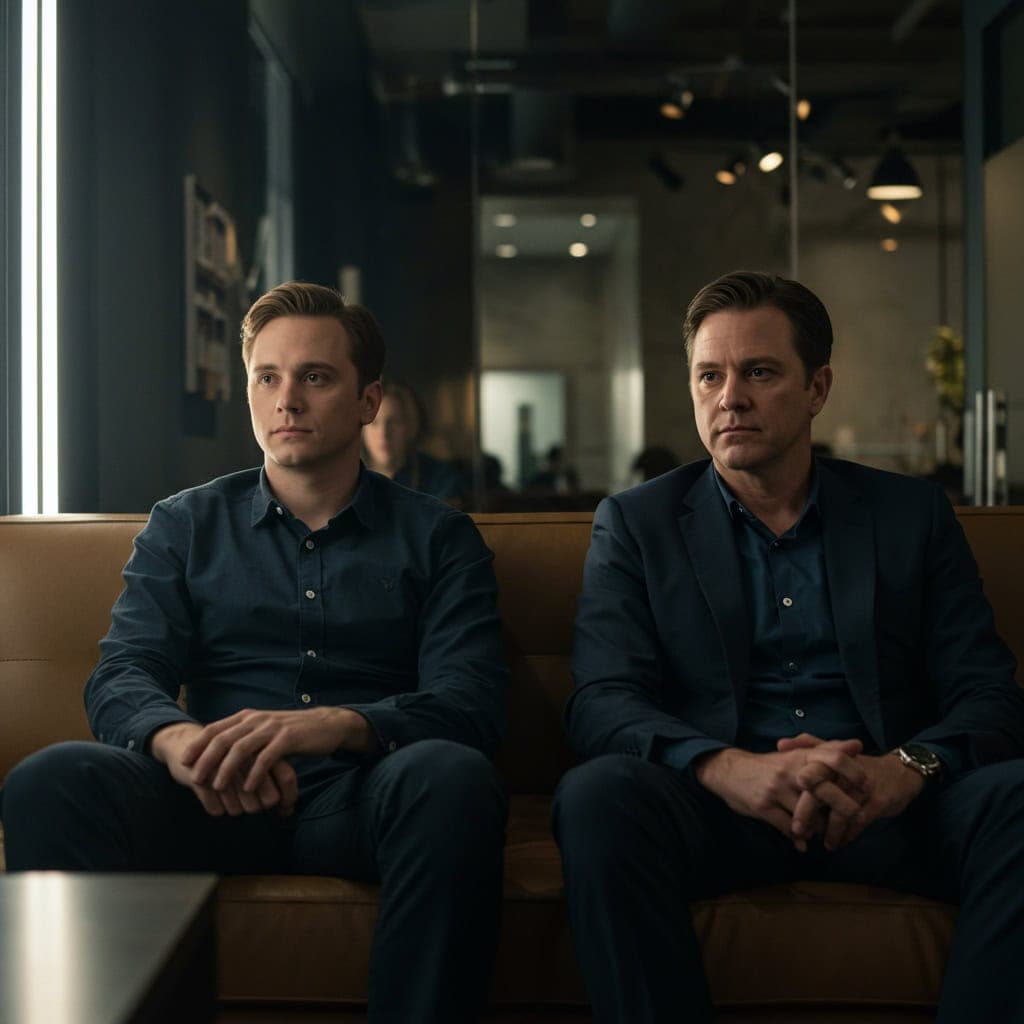
Amid the turmoil, Eli finally agreed to share his side of the story. We met privately, away from the prying eyes and tense atmosphere of family gatherings. His voice was steady, but there was a vulnerability in his words that made it impossible to look away. He spoke of feeling like an outsider from an early age—of overheard arguments, abrupt disappearances, and the day he realized he was no longer welcome at home.
Eli described years of bouncing between foster care, distant relatives, and the kindness of strangers. He learned to stop asking questions, to build a life from fragments and fading memories. Despite the pain, he admitted to always hoping for a homecoming that never came. “I just wanted to know why,” he said quietly, “and if anyone missed me at all.”
Hearing Eli’s truth was devastating and necessary. It reframed everything I thought I knew about our family—and made the need for healing more urgent than ever.
The Relapse
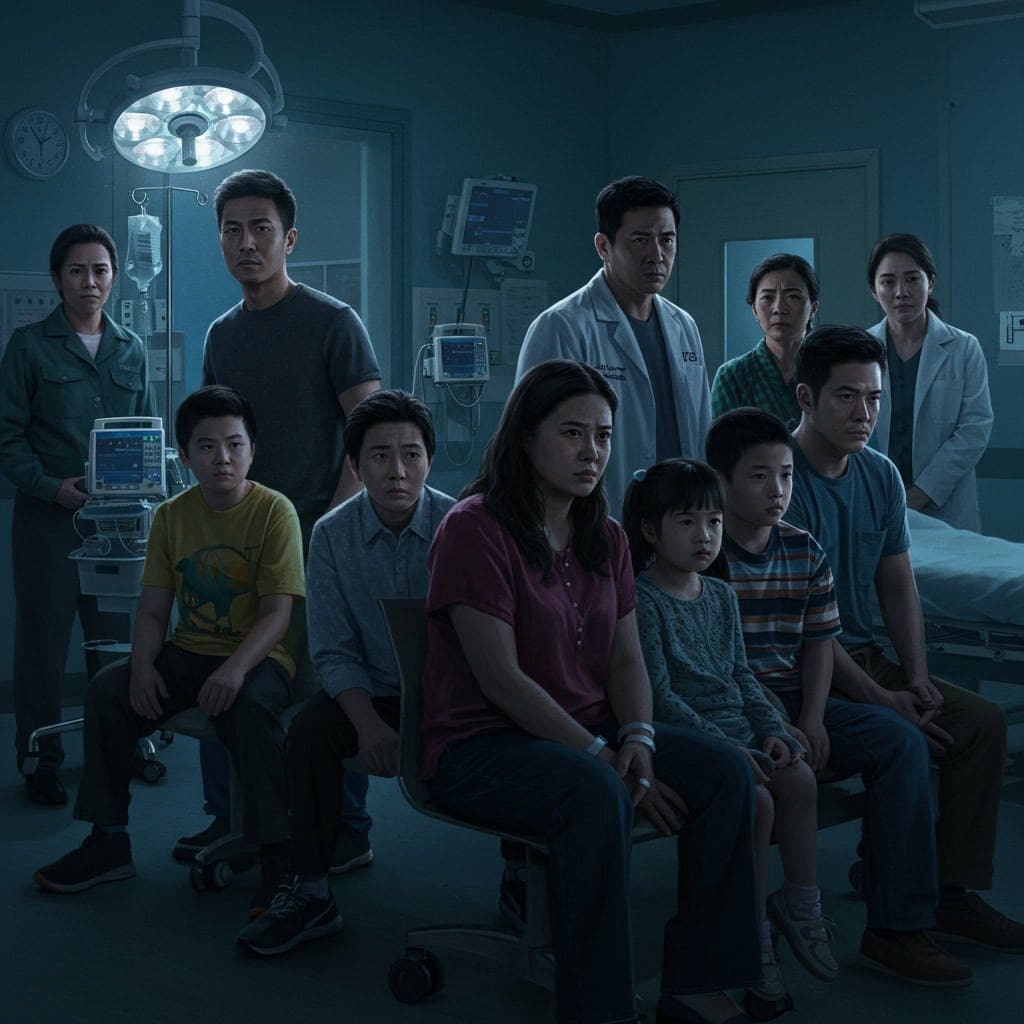
Just as the family was splintering beyond repair, Eli’s health took a sudden, frightening turn. He was rushed to the hospital with severe complications, the transplant now more urgent than ever. The news cut through lingering bitterness, prompting a reluctant truce among relatives. Whatever resentments remained, they were eclipsed by the fear of losing Eli again—this time, for good.
Family members who hadn’t spoken in weeks found themselves gathered in the same waiting room, united by anxiety and helplessness. Old arguments fell silent as we focused on updates from the doctors and comforted one another with quiet gestures. Even my grandfather, stoic and silent, sat in the corner, his presence an unspoken admission of love and regret.
For the first time in years, we put aside our differences—not because wounds had healed, but because we all understood what was truly at stake: the life of a sibling who, despite everything, was still part of us.
The Forgiveness Letter
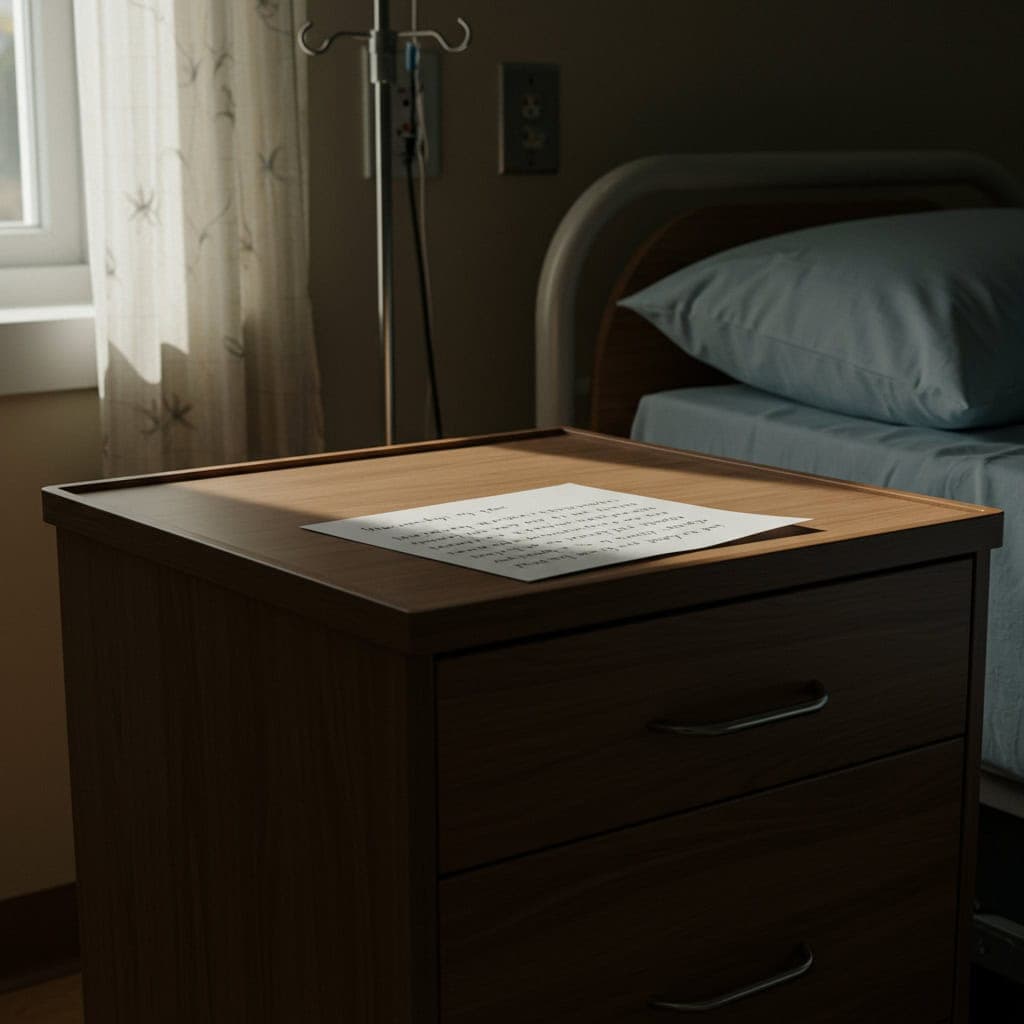
During Eli’s hospital stay, a letter began to circulate among family members. Penned in Eli’s careful handwriting, it was an open plea for forgiveness—not just for himself, but for all of us. He wrote of the pain of exile and the relief of finally being seen, but also acknowledged the fear, regret, and deep confusion that had shaped everyone’s choices. Eli asked for understanding, offering his own forgiveness to those who had hurt him, whether by action or silence.
The letter was passed from hand to hand, sometimes accompanied by tears, sometimes by stony silence. Some relatives, moved by Eli’s vulnerability, responded with apologies and tentative embraces. Others refused to read it, insisting that the past was best left buried. Forgiveness, it seemed, was not a simple transaction—but a process that some were ready for, and others could not yet face.
Still, the letter marked a turning point. Its presence was a quiet challenge: to let go, or to hold on to old wounds, even as the future remained uncertain.
The Old Home Video

In the midst of hospital vigils and tense family gatherings, I stumbled upon a dusty VHS tape buried in a box of forgotten keepsakes. The label was nearly illegible, but curiosity—and a desperate need for some sense of closure—pushed me to dig out the old player and watch. The grainy footage flickered to life, revealing a sunlit backyard, laughter echoing through the speakers.
There, unmistakably, was a much younger Eli, racing through sprinklers and chasing bubbles with me and our cousins. Our parents’ voices, full of warmth and pride, narrated the scenes. It was a vision of happiness that nobody seemed to remember—or perhaps, nobody wanted to remember. For a few precious minutes, the family was whole. There was no trace of resentment, no hint of impending exile.
The video was both a balm and a wound—proof that we had once been united, and a reminder of just how much we’d lost in the years since.
The Will
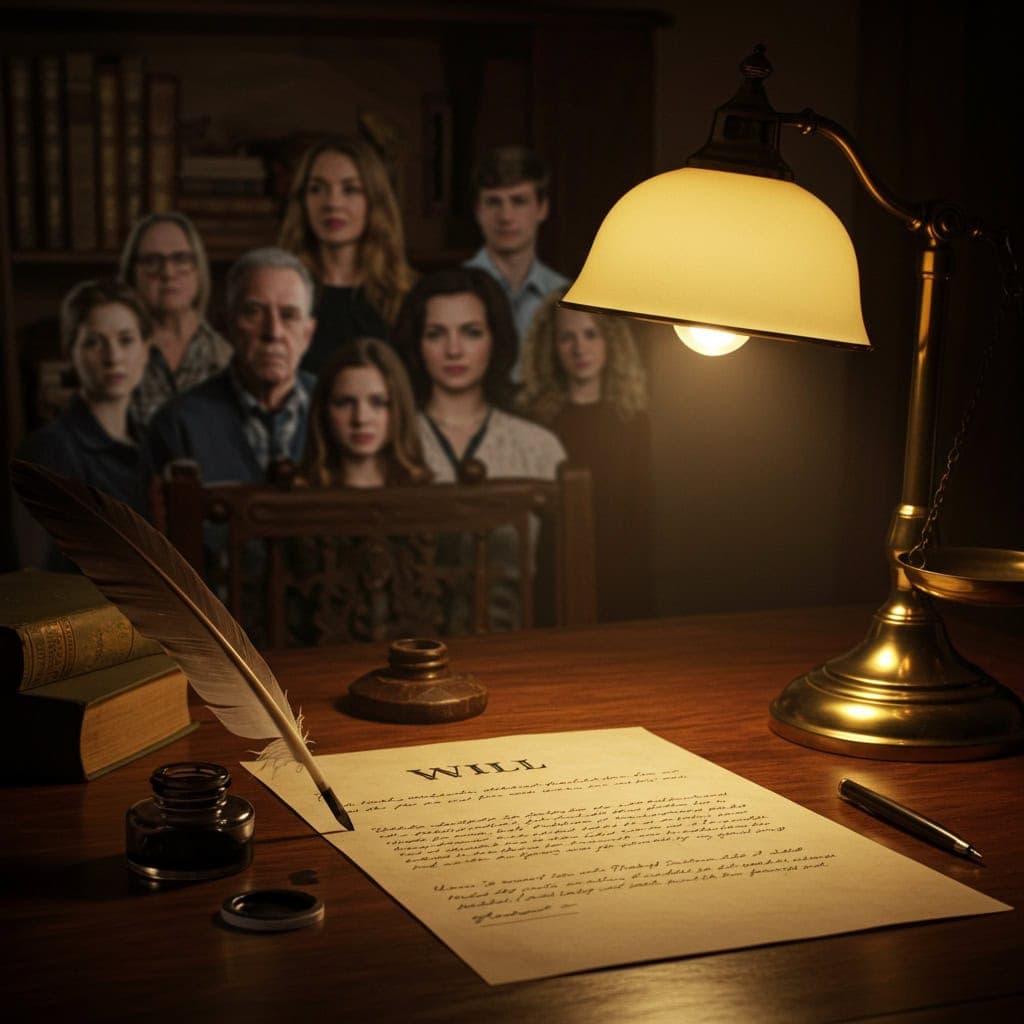
As the dust began to settle, another shockwave rippled through the family: my grandfather, perhaps moved by guilt or a sense of justice, announced that he had drafted a new will. Eli was to be included as an equal heir, the inheritance now split among all siblings. The news was met with a stunned silence, quickly followed by whispers of outrage and barely concealed resentment.
Some relatives accepted the decision as a long-overdue correction; others saw it as an unforgivable betrayal, a reward for Eli’s “disruption” of the family peace. Old alliances crumbled and new ones formed, siblings who had once been close now barely spoke. The promise of money did what decades of secrets could not: it forced everyone to confront what truly mattered to them.
The new will became both a symbol of change and a fresh source of bitterness, underscoring just how difficult real reconciliation would be.
The Hospital Bill
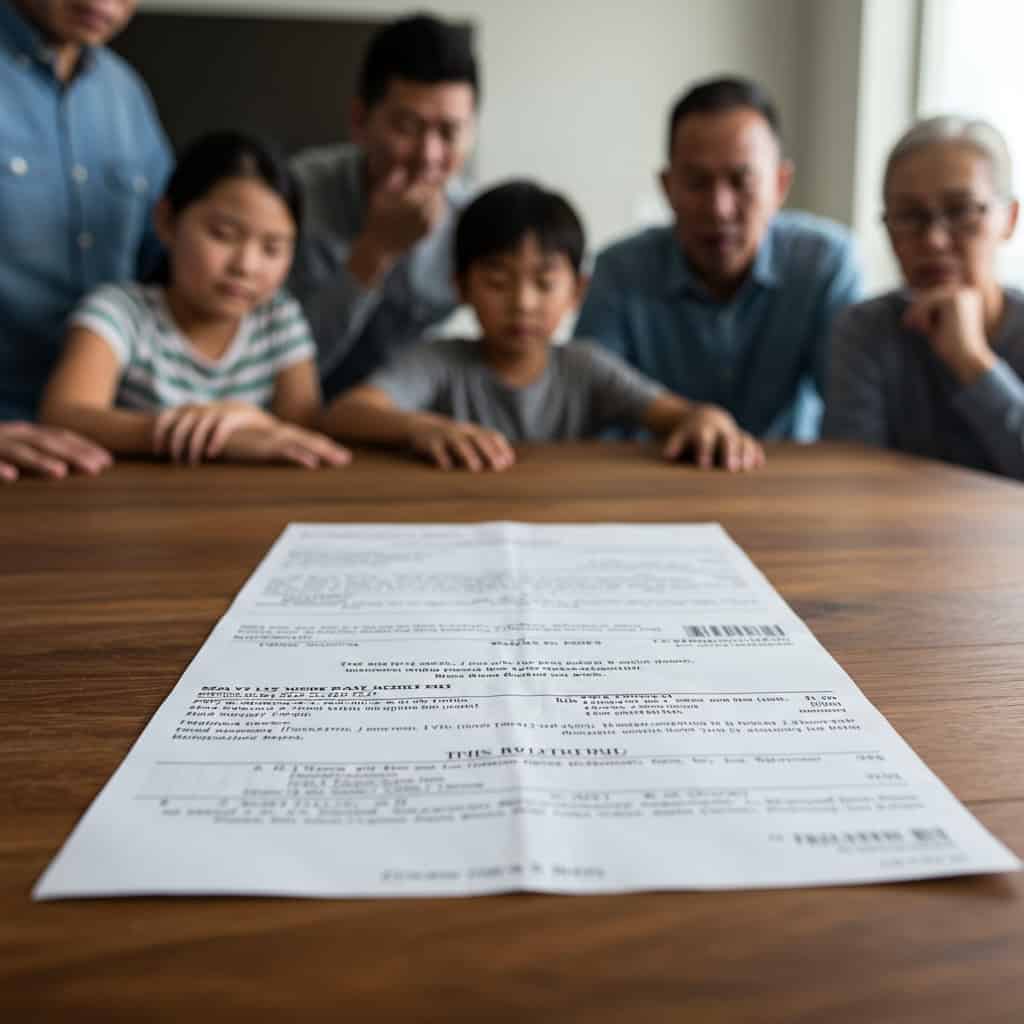
Just as the family began to grapple with the implications of the new will, another envelope arrived—this time from the hospital’s billing department. The document inside was daunting: pages of itemized charges, specialist fees, and pharmaceutical costs. The total was a staggering sum, enough to make even the wealthier relatives blanch. For a moment, the fragile unity forged by Eli’s crisis seemed to crumble under the weight of financial reality.
Questions swirled. Who would shoulder the responsibility for Eli’s care? Was it fair for those who had exiled him to now be asked to help? Some argued that the inheritance should be used to pay the bills, while others balked at the idea of sacrificing their share. Tensions flared, old resentments resurfaced, and practical concerns overshadowed the emotional progress we’d made.
The bill was more than just a monetary burden—it was a litmus test for our family’s willingness to turn words of forgiveness into meaningful, collective action. Once again, we found ourselves at a crossroads, forced to choose between self-interest and true reconciliation.
The Apology Dinner
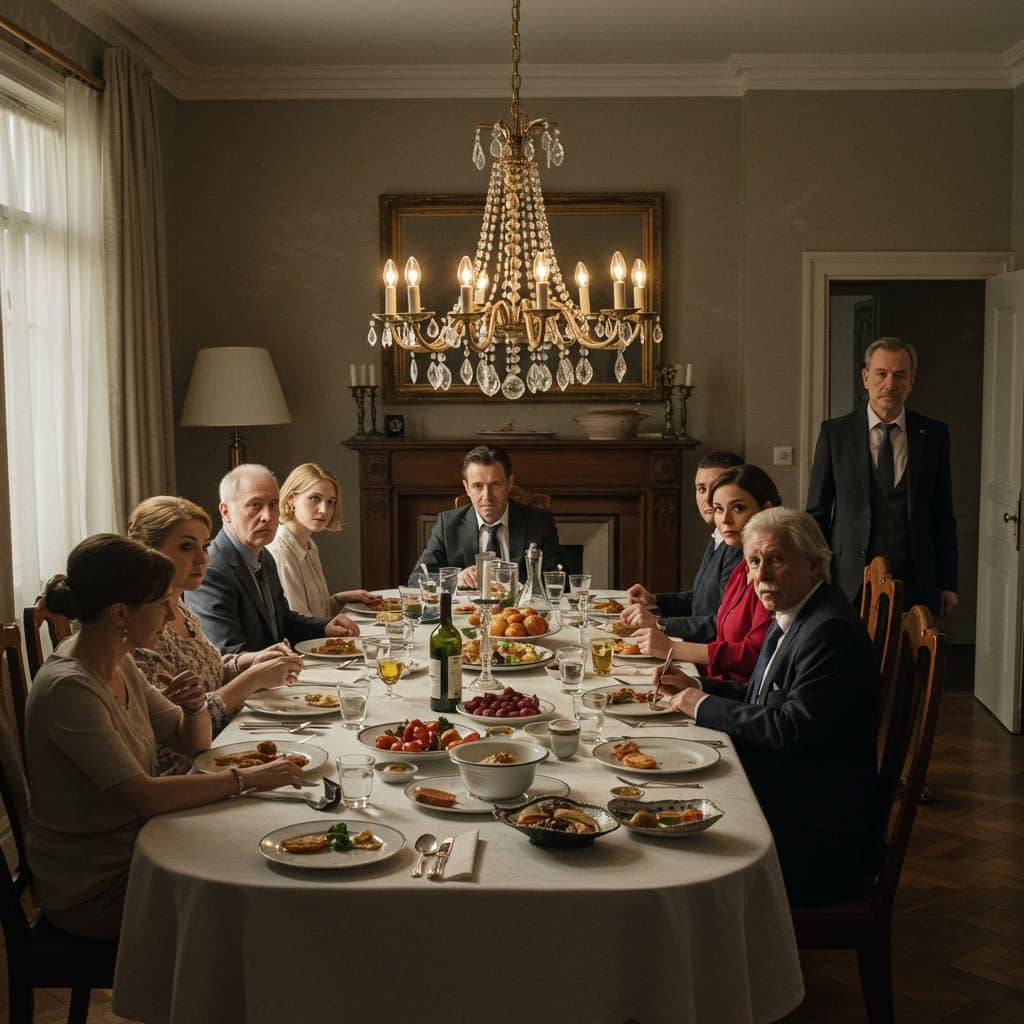
With Eli’s health stabilizing and the hospital bill looming, my mother suggested an “apology dinner”—a formal invitation to Eli, extended under the guise of reconciliation. The motives behind it were complicated; some relatives hoped to smooth things over for appearances, others were swayed by guilt or financial anxiety, and a few genuinely wanted to make amends.
The atmosphere was thick with unease as everyone gathered around the table. Eli arrived, quiet but dignified, flanked by Aunt Margaret for support. The conversation was halting at first, punctuated by awkward silences and forced small talk. My grandfather offered a stiff apology, while others followed with mumbled sentiments of regret. It was clear that not all wounds could be healed in a single evening.
Yet, as the meal wore on, a few genuine moments of laughter broke through the tension. The dinner was far from perfect, but it was a tentative step toward something resembling understanding—or, at the very least, a fragile peace.
The Missing Jewelry
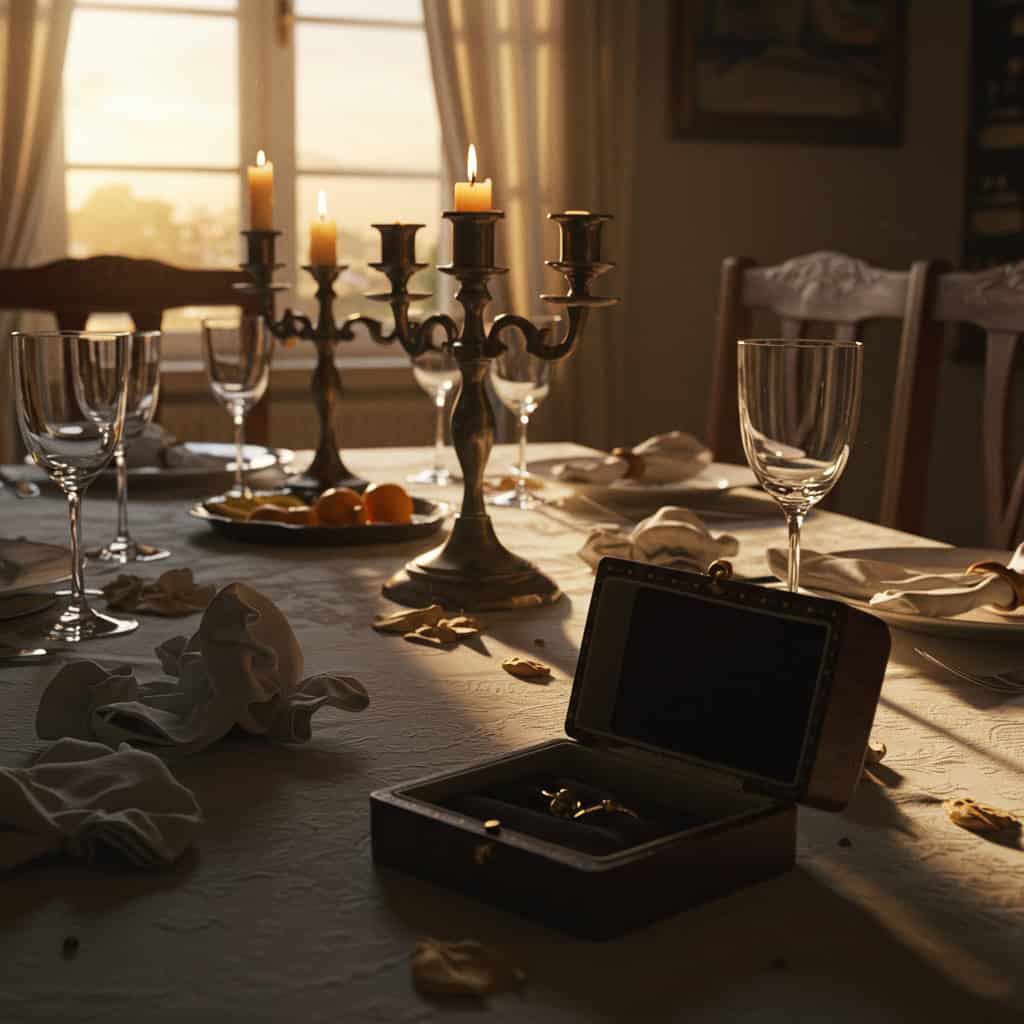
Just as the family began to inch toward reconciliation, another storm erupted. My grandmother’s cherished sapphire brooch—a family heirloom passed down for generations—vanished after the apology dinner. The loss was discovered the next morning, and panic quickly morphed into suspicion.
Old grudges resurfaced with a vengeance. A few relatives whispered that Eli, still viewed by some as an outsider, might have taken it. Others defended him, insisting it was unfair to cast blame without proof. The brooch’s disappearance became a symbol of the mistrust that still lingered beneath the surface. Every attempt at unity now felt fragile, easily shattered by a single accusation or misunderstanding.
The search for the missing jewelry exposed how quickly the family could revert to old patterns. Even as we tried to move forward, the shadows of the past were never far behind, threatening to undo all that we’d struggled to rebuild.
The Outsider’s Confession
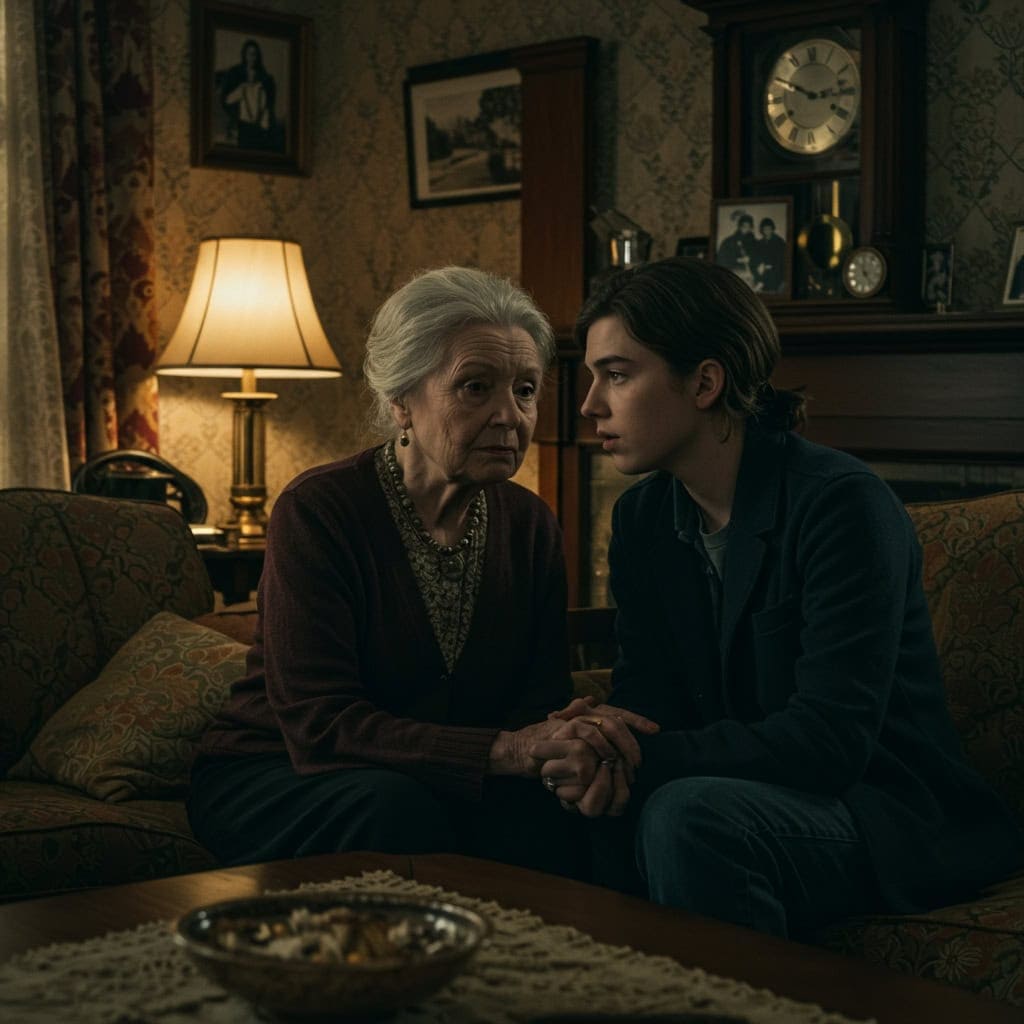
In the midst of renewed suspicion and tension over the missing jewelry, Aunt Margaret pulled me aside, her expression grave. She confessed that she had something to tell me—something she had carried for decades. As we sat in the quiet of her living room, she revealed her own role in Eli’s banishment. Her confession turned everything I thought I knew upside down.
Margaret explained that during a turbulent period in the family, she had sided with my grandfather against Eli, believing it was best for everyone. She admitted to pushing for Eli’s removal after a particularly heated argument, convinced at the time that it would protect the family’s reputation. Tears welled in her eyes as she described the regret that had haunted her ever since. She said she had tried to make amends by secretly staying in touch with Eli and supporting him, but knew it could never erase the pain of her original actions.
Her confession brought new perspective—reminding me that family secrets are rarely the fault of just one person, and that forgiveness must sometimes begin with those who least expect it.
The Therapist’s Notes

As the family tried to process Aunt Margaret’s confession, another layer of truth emerged. My mother, sorting through old paperwork, handed me a folder she had found tucked away in a desk drawer. Inside were notes and reports from a therapist who had seen both Eli and me separately as children, though I had no memory of the sessions.
The therapist’s notes were clinical yet deeply personal, outlining the profound psychological toll that secrecy and separation had taken. For Eli, the abandonment led to chronic anxiety, trust issues, and a lifelong struggle with self-worth. The reports described my own confusion and vague sense of loss—symptoms I’d never understood until now. The therapist warned of the dangers of unresolved trauma, highlighting how silence and denial ripple through generations.
Reading the notes was sobering. They made clear that the wounds inflicted by family secrets don’t heal on their own. If anything, they deepen, shaping the lives of everyone involved in ways that are both visible and hidden.
The Old School Reunion
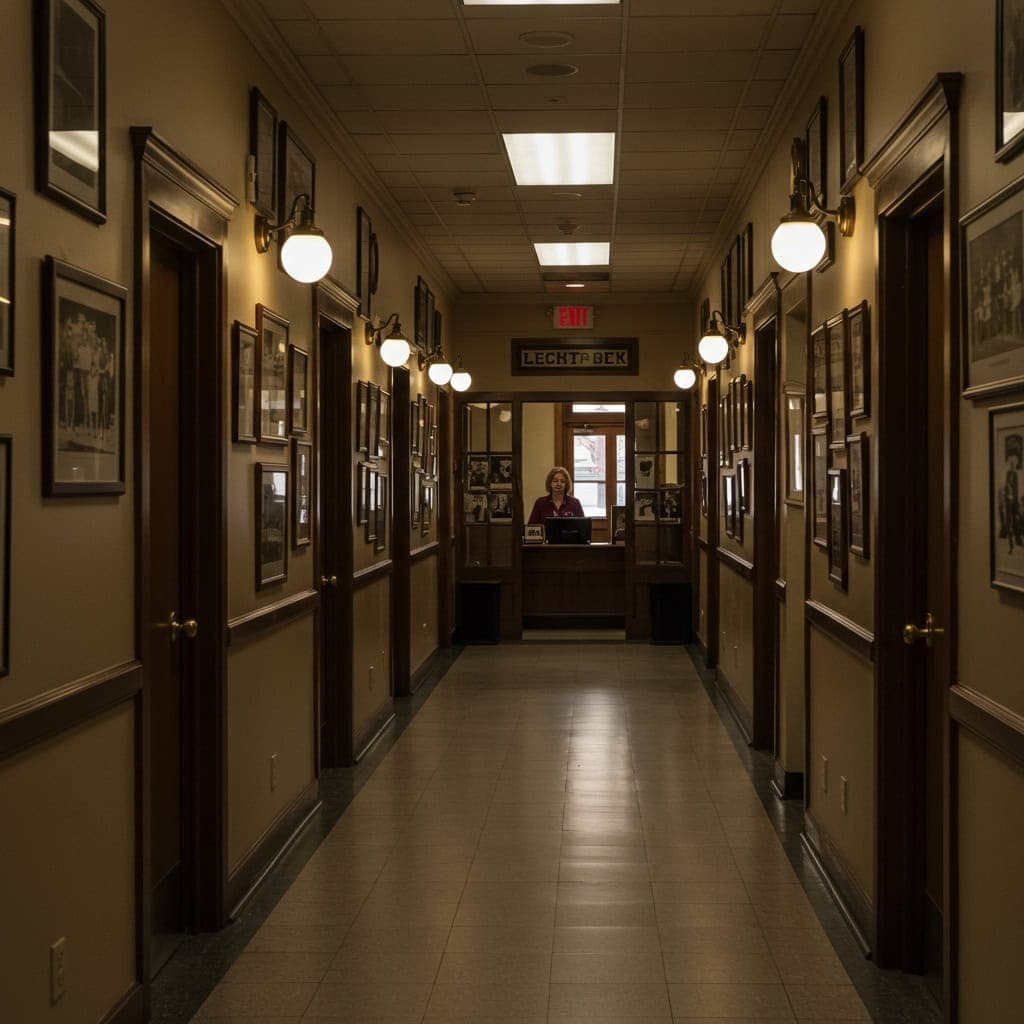
Seeking more pieces of Eli’s story, I visited the school where he’d spent much of his childhood. The halls were lined with faded class photos and trophies, a stark contrast to the turmoil I felt inside. At the front office, I introduced myself and explained my connection. To my surprise, the secretary instantly recognized Eli’s name and ushered me to the counselor’s office.
There, I met Mrs. Keegan, a retired teacher who had mentored Eli during his most difficult years. She spoke warmly of his kindness and resilience, recalling how he’d always stayed late to help others even as he struggled to find his own place. Mrs. Keegan admitted she’d often wondered what became of him and was visibly moved to learn he was finally reconnecting with family.
Her memories offered a welcome counterpoint to the pain Eli had shared. It reminded me that even in the darkest times, there are allies quietly rooting for us—sometimes for years, without us ever knowing.
The Newspaper Clipping

While searching through a box of Eli’s old belongings, I stumbled upon a yellowed newspaper clipping carefully tucked between school notebooks. The article, from a local paper, reported on a “disturbance” involving a minor at our family’s address. Though names were omitted, the details were unmistakable—a late-night police visit, neighbors’ statements, and hints of family turmoil.
Reading between the lines, it was painfully clear that the incident had triggered Eli’s sudden disappearance from our lives. The story had been sanitized for the public, but the subtext was unmistakable: something serious had happened, something the family had felt compelled to hide from both the community and themselves.
The clipping was a stark reminder that the roots of our family’s secrecy ran deeper than I’d realized. The shame, the silence, and the desperate need to protect our reputation had cost us more than we could have ever imagined.
The DNA Results

The envelope arrived with a soft thud in my mailbox, the return address from the DNA lab unmistakable. My hands shook as I tore it open, the weight of weeks—years, really—of questions pressing down on me. Inside, the report was concise and clinical, but its meaning was seismic: the probability of a full sibling relationship was over 99.99%. The blood tie was undeniable.
I called Eli immediately. He answered on the first ring, voice tight with anticipation. “It’s official,” I said, barely able to keep the tremor from my words. “We really are siblings.” For a moment, neither of us spoke; the silence was thick with relief, disbelief, and a surge of bittersweet joy.
The results shattered any lingering doubts among family members. Even those who had clung to denial could no longer refute the truth. The science was clear: whatever had happened in the past, nothing could erase the bond written in our very DNA.
The Sibling’s Room

In the wake of the DNA confirmation, I found myself drawn to the room that had once belonged to Eli—a space my family had long repurposed and rarely spoke of. Dust motes danced in the filtered light as I crossed the threshold, the air tinged with the bittersweet scent of old books and faded posters.
I sifted through boxes under the bed, discovering forgotten dreams: a stack of comic books, a half-filled journal with stories about imaginary worlds, and drawings signed with Eli’s childhood scrawl. Tucked in a drawer were painful mementos—a forgotten birthday card, a school award, a crumpled letter never sent. Each item was a testament to a life interrupted, a person who had once been woven into the fabric of our family before being cut away.
Standing amid these relics, I felt the full weight of everything lost—and the fragile hope that, somehow, we might begin to reclaim what was taken.
The Mother’s Breakdown

The avalanche of revelations finally proved too much for my mother. One evening, after yet another tense family discussion, her composure splintered. She collapsed onto the kitchen floor, tears streaming down her face, sobbing with a grief that seemed to come from the deepest part of her soul. Her cries echoed through the house, drawing us all to her side.
She confessed her guilt in broken sentences—how she had let fear, shame, and pressure from her own parents cloud her judgment. “I abandoned my own child,” she wept, her voice ragged. “I thought I was protecting everyone, but I destroyed our family instead.” We gathered around her, offering what comfort we could, but it was clear the pain she carried would not be easily soothed.
Her breakdown was a moment of raw honesty—an admission of the damage done and the need for forgiveness, not just from Eli, but from herself. It marked the beginning of her own journey to reckon with the past.
The Father’s Silence
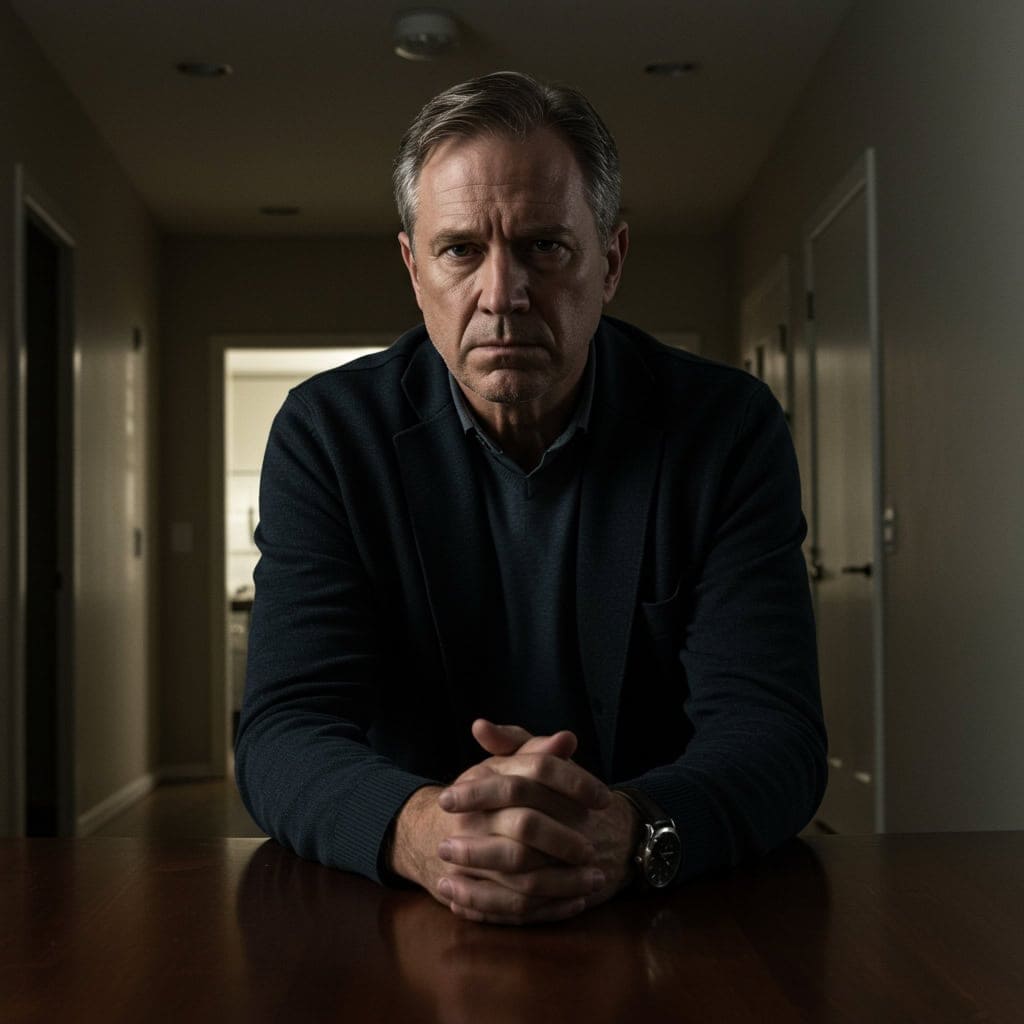
While my mother’s grief spilled out for all to see, my father retreated into a shell of stoic silence. He moved through the house like a ghost, avoiding eye contact and slipping away whenever the subject of Eli was raised. Questions about his role in the banishment were met with a tight jaw and averted gaze.
Days turned into weeks, and still he offered no explanation or apology. The rest of us tried to bridge the gap, but he responded only with monosyllables or a weary shake of his head. His silence became another wound—an absence that spoke volumes even as it left us with more questions than answers.
Whether out of denial, shame, or a stubborn refusal to confront the past, my father’s refusal to speak stood in stark contrast to the raw honesty that had begun to heal the rest of us. The distance between us grew, heavy with things left unsaid.
The Family Meeting
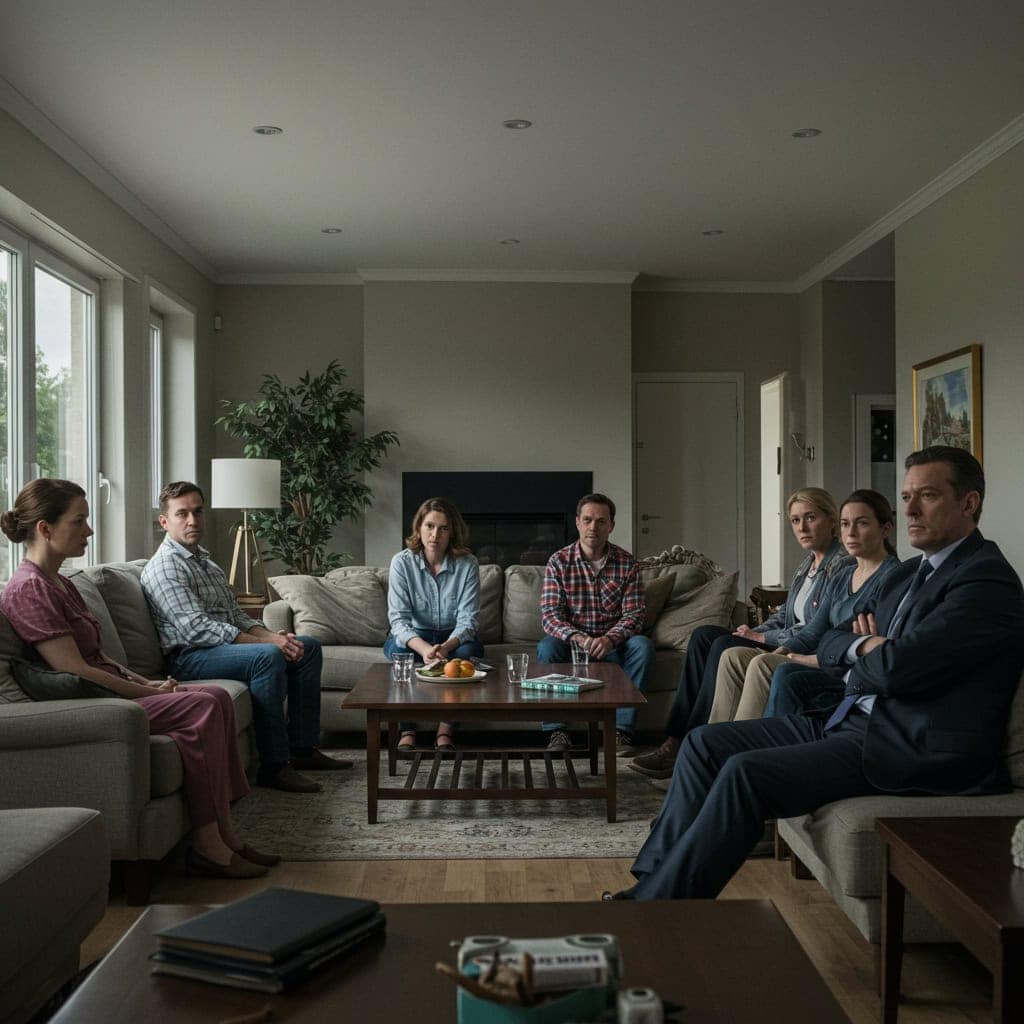
With Eli’s health still precarious and the air thick with unresolved tension, my mother called an emergency family meeting. We gathered in the living room, the mood tense and uncertain. Every chair was filled, even my father, though he sat stiffly in the corner, arms crossed. The agenda was Eli’s future: Where would he live after recovery? Who would help with ongoing care? How would the bills and responsibilities be shared?
The discussion quickly became heated. Some advocated for Eli to return home, insisting it was “the least we could do,” while others worried about reopening old wounds. Financial concerns, logistical issues, and lingering resentments surfaced with every suggestion. Yet beneath the arguments, there was a shared understanding that we could no longer ignore Eli’s place in our lives.
By the end of the meeting, no perfect solution had emerged. But there was a commitment—however fragile—to face the future together, and to try, at last, to do right by the sibling we had all lost.
The Sibling’s Letter

After the tense family meeting, the house was eerily quiet. The next morning, I found an envelope propped against the coffee maker—the familiar handwriting unmistakable. It was a letter from Eli, written with a clarity and resolve that sent a chill through me. He thanked us for our efforts and for the moments of kindness, but he was clear: “I can’t keep living in limbo, unsure if I truly belong. If I’m not accepted as family, I will leave for good, and you will never hear from me again.”
Eli’s words were blunt, but not angry. He described his exhaustion at being the source of conflict and his need for peace—wherever that might be found. The letter was both an ultimatum and a plea: accept me, or let me go. It was a painful reminder of what was at stake, and a final chance for us all to choose whether old wounds or new beginnings would define our future.
The Midnight Escape
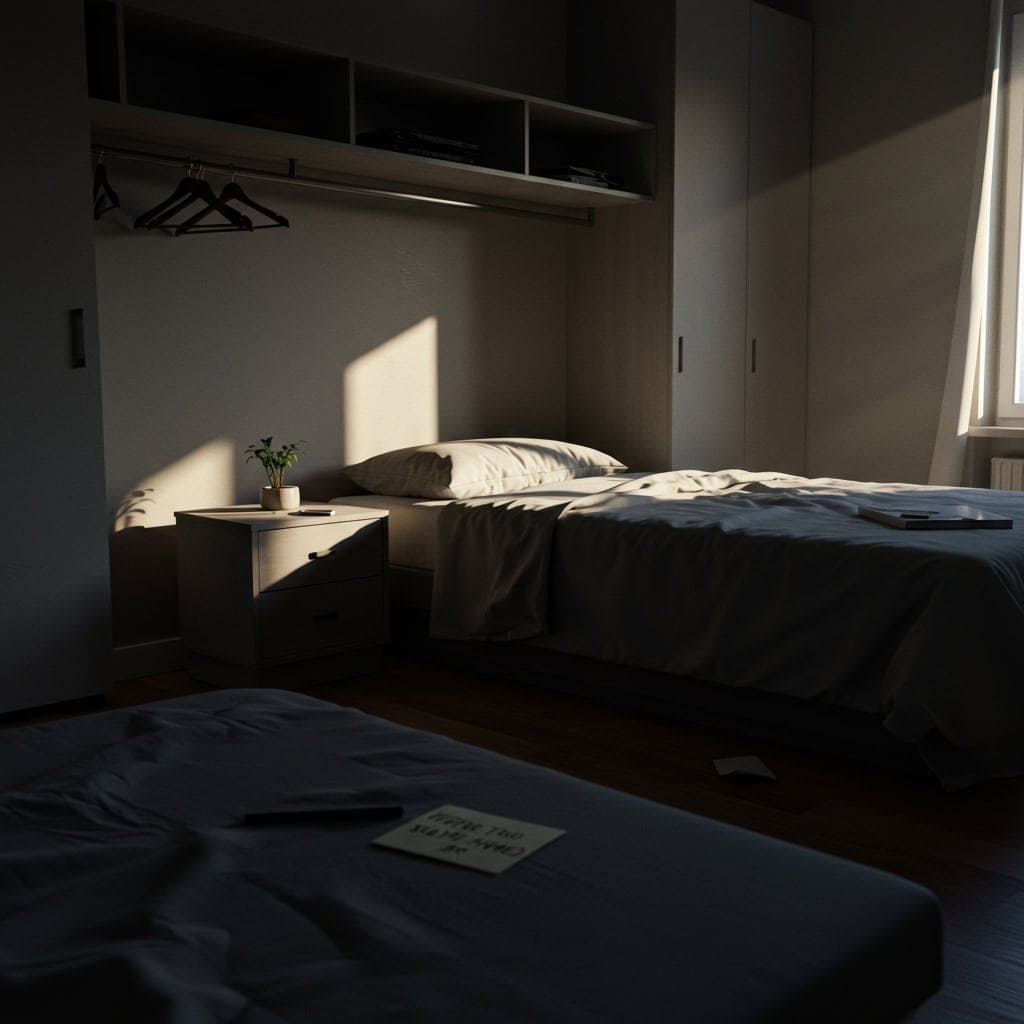
Despite the letter, we underestimated Eli’s resolve. When morning came, his room was empty—closet cleared, bed made, a note left behind that read only, “I had to go.” Panic swept through the house. My mother collapsed in tears, my father wandered the yard in a daze, and phone calls flew between relatives, each more frantic than the last.
The police were notified, but there was little they could do for an adult who had left of his own will. Every possible contact was checked, hospitals called, and friends alerted, but Eli had vanished without a trace. The sense of chaos was overwhelming: accusations surfaced, blame ricocheted from one family member to another, and old wounds reopened with fresh ferocity. Even those who had hesitated about accepting Eli now felt his absence like a physical ache.
We scoured social media, retraced his steps, and waited for a sign, any sign, that he was safe. The house, once buzzing with conflict, fell into a heavy, uncertain silence—haunted by the sudden void Eli had left behind.
The Search Party

Desperation united us in a way nothing else ever had. Relatives who’d barely spoken in years now huddled over maps and phone lists, dividing the city into sectors to organize a systematic search for Eli. My uncle set up a group chat solely for updates; cousins drove through neighborhoods, checking shelters and bus stations, while aunts called every hospital, just in case.
The stress of the search shifted old alliances. Some who had once blamed Eli now worked tirelessly to find him, guilt propelling them forward. Others, previously at odds, found comfort in shared worry. Each hour without news stretched nerves thinner, but it also reminded us of what truly mattered.
Amid the chaos, we learned to rely on each other again, if only for a common cause. Finding Eli became our only goal—a fragile thread of hope holding the family together as we waited, and prayed, for a sign that he was safe.
The Hospital Call‑Back

After days of searching and sleepless nights, the phone finally rang—a number from the hospital. My heart lurched as I answered, bracing for the worst. The nurse on the line calmly explained that Eli had been admitted in crisis, found by a passerby and brought in for urgent care. Relief and fear collided in an instant: he was alive, but in need of help.
Word spread quickly, and the family—fractured as we were—converged on the hospital. Old grudges were set aside as we filled the waiting room, united by a single hope for Eli’s recovery. My mother wept with relief, while my father stood silently at her side. Aunts and uncles brought food, cousins offered comfort, and even those who had once resisted Eli’s return found themselves praying for his strength.
The call from the hospital was a jolt of reality: whatever our differences, Eli was ours. In crisis, we remembered what family could mean—and how much we still had to lose.
The Forgiveness Attempt
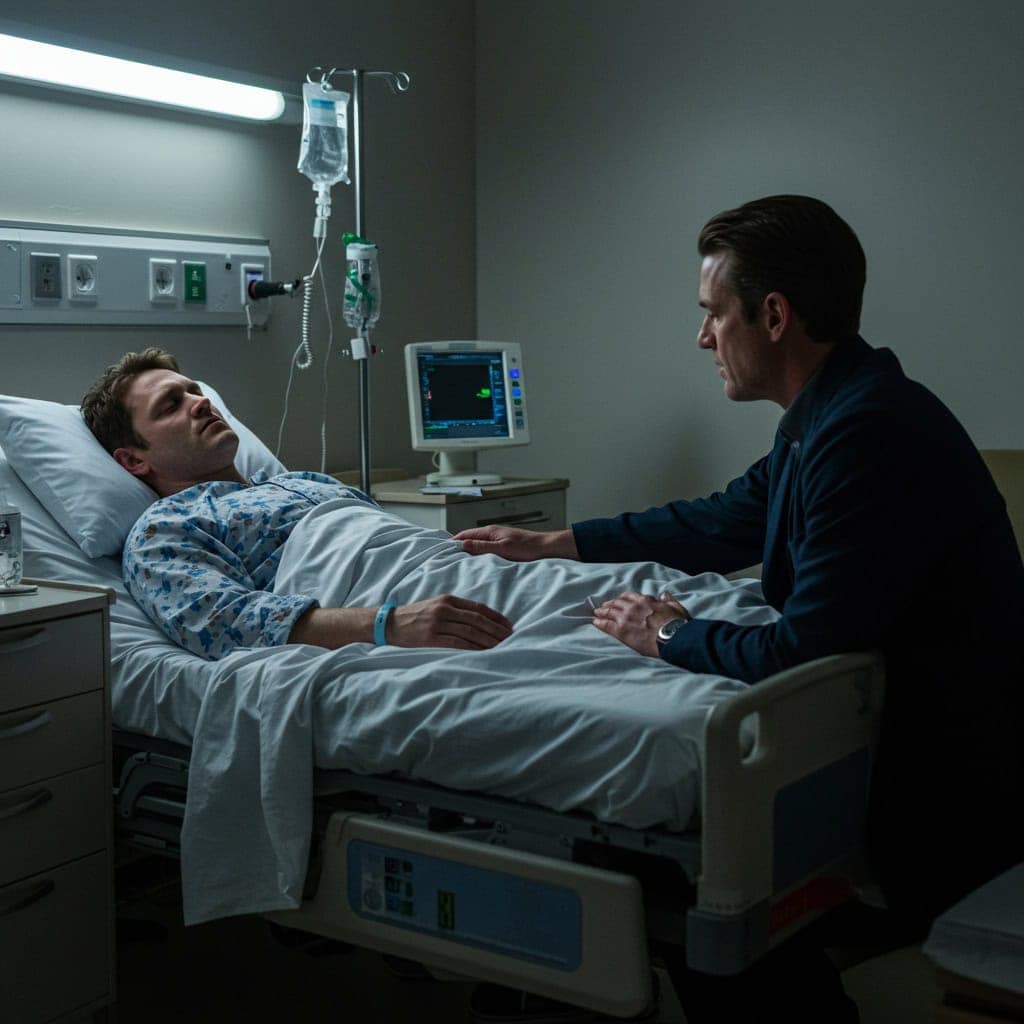
Sitting by Eli’s hospital bed, I realized there were no perfect words for a lifetime of absence and pain. Still, I reached for his hand, my voice trembling as I spoke. “I’m sorry for everything—for not knowing, for not searching sooner, for letting the past dictate what we could be.” My apology was imperfect, shaped by regret and the hope that it wasn’t too late.
Eli’s eyes flickered with a mix of exhaustion and caution. He didn’t respond right away; the silence between us was thick with uncertainty. I wondered if forgiveness was even possible after so much damage and distance. All I could do was offer my honesty and wait.
Minutes passed before Eli finally squeezed my hand—a small gesture, but one that carried the weight of a thousand words. It wasn’t a promise of resolution, but it was a beginning, a fragile chance to rebuild trust from the rubble of our shared past.
The Graduation Photo
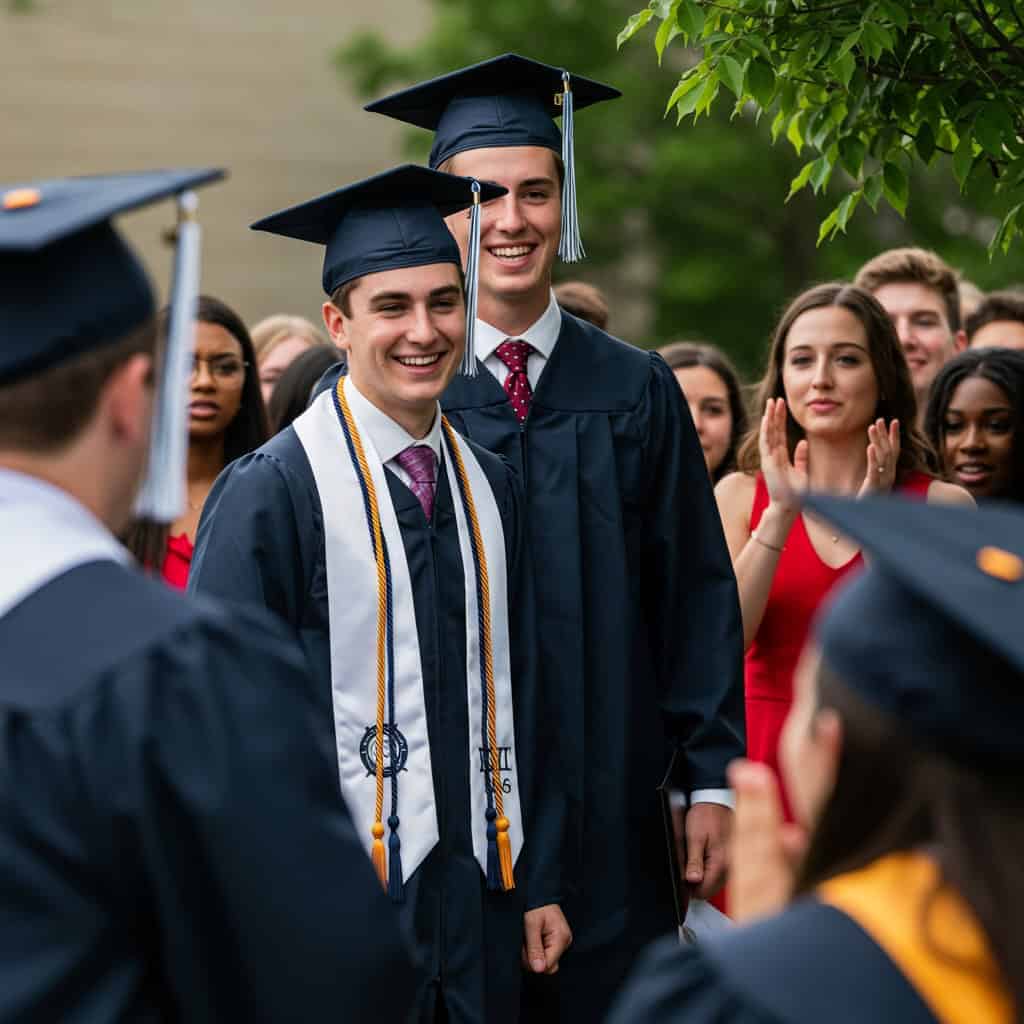
While helping Eli sort through a box of personal belongings delivered to the hospital, I discovered a photo from his high school graduation. In the picture, Eli stood proudly in cap and gown, surrounded by classmates and teachers. But what caught my eye was a familiar figure at the edge of the crowd—my mother, partially hidden behind a tree, watching from a distance.
The realization hit me with a bittersweet ache. She had been there, even if only as a shadow on the sidelines. Eli noticed my gaze and, after a moment’s hesitation, nodded. “I always wondered if she came,” he admitted quietly. The photo was a silent testament to a mother’s enduring love—even when expressed in secrecy and shame.
That glimpse of connection, however veiled, offered hope: perhaps, despite everything, our family ties had never fully broken, only stretched and hidden, waiting for a chance to heal.
The Will Reading
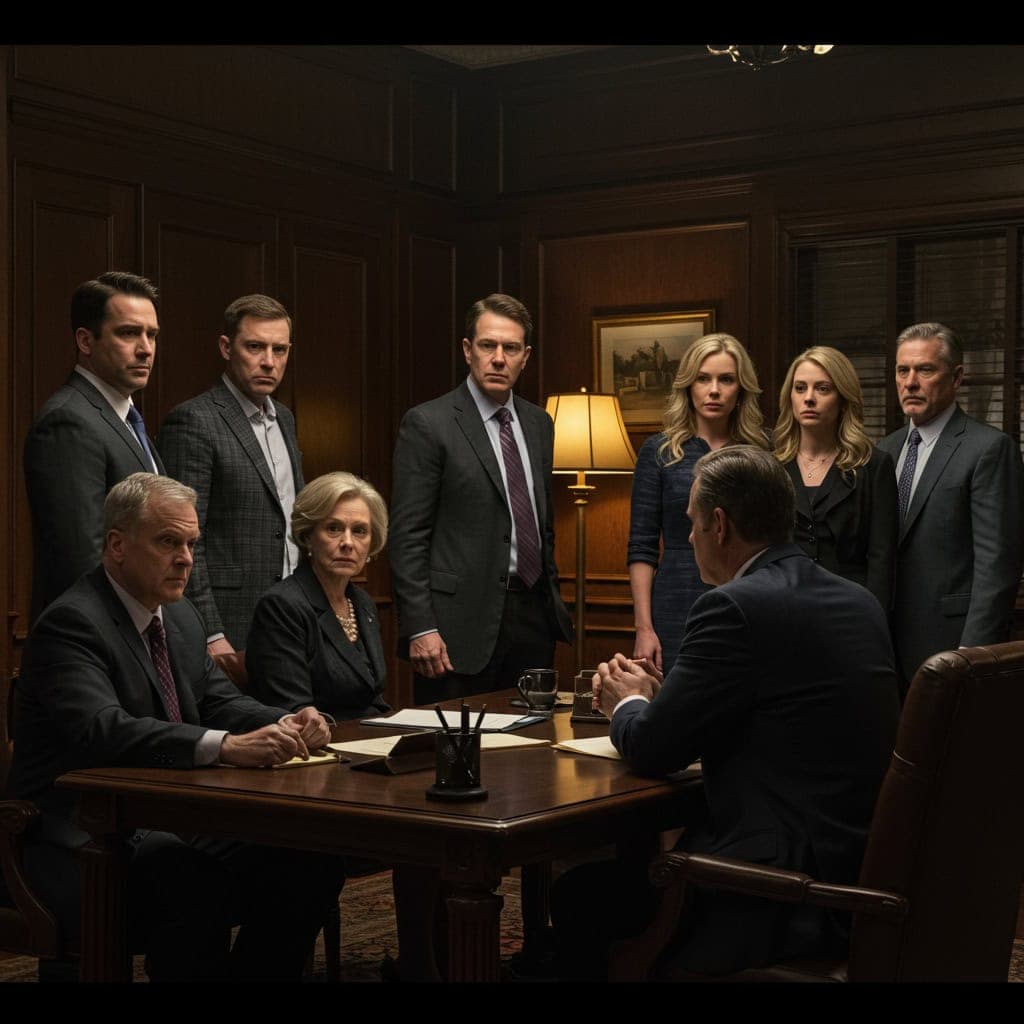
The family gathered in a stuffy attorney’s office, the air thick with anxiety and old grudges. My grandfather’s will was to be read, and no one knew exactly what to expect after the recent upheavals. Eli, newly acknowledged and visibly nervous, sat beside Aunt Margaret. My parents exchanged wary glances while cousins whispered behind pursed lips.
The attorney’s voice was calm but unyielding as he revealed new terms: the estate would be divided equally among all siblings, but only if each heir signed a statement of acceptance and reconciliation. Anyone who refused would forfeit their share, which would instead be donated to charity. The clause was met with gasps and a ripple of angry protests. Suddenly, money and legacy were no longer just rewards, but tests of character and forgiveness.
Faced with a choice between resentment and acceptance, the family was forced to confront what truly mattered—love, unity, and the willingness to let go of the past. The reading of the will became less about wealth and more about whether we could finally begin to heal.
The Epilogue

In the months since Eli’s return—and the avalanche of revelations that followed—our family has struggled to find its footing. The scars of secrecy and betrayal run deep, and there are days when reconciliation feels as fragile as spun glass. Some relatives remain distant, unable or unwilling to accept the new reality. Others, moved by Eli’s resilience and the honesty that finally burst through decades of silence, have begun to reach out, seeking forgiveness or simply to listen.
We lost a great deal along the way: trust, innocence, and the comforting illusion that our family was unbreakable. Yet, in the wreckage, we also gained something unexpected. There is a new openness among us—a willingness to ask hard questions, to admit fault, and to try, however imperfectly, to bridge the chasms that secrecy left behind. Eli’s presence is no longer a source of shame, but a reminder of what it means to be truly seen and accepted.
Our wounds are still raw. There are apologies that may never be spoken, and relationships that may not recover. Yet, when I look at Eli—at the laughter we now share, the tentative trust, and the slow rebuilding of memories—I am reminded that healing is possible, even if it comes with scars. We are not the family we once were, but we are, in some ways, more honest and more human than before.
If your family harbors secrets, consider the cost of silence. You may find, as we did, that the path to healing begins with a single act of courage. The journey is never easy, but the possibility of hope—and of genuine connection—makes it worth every step.





